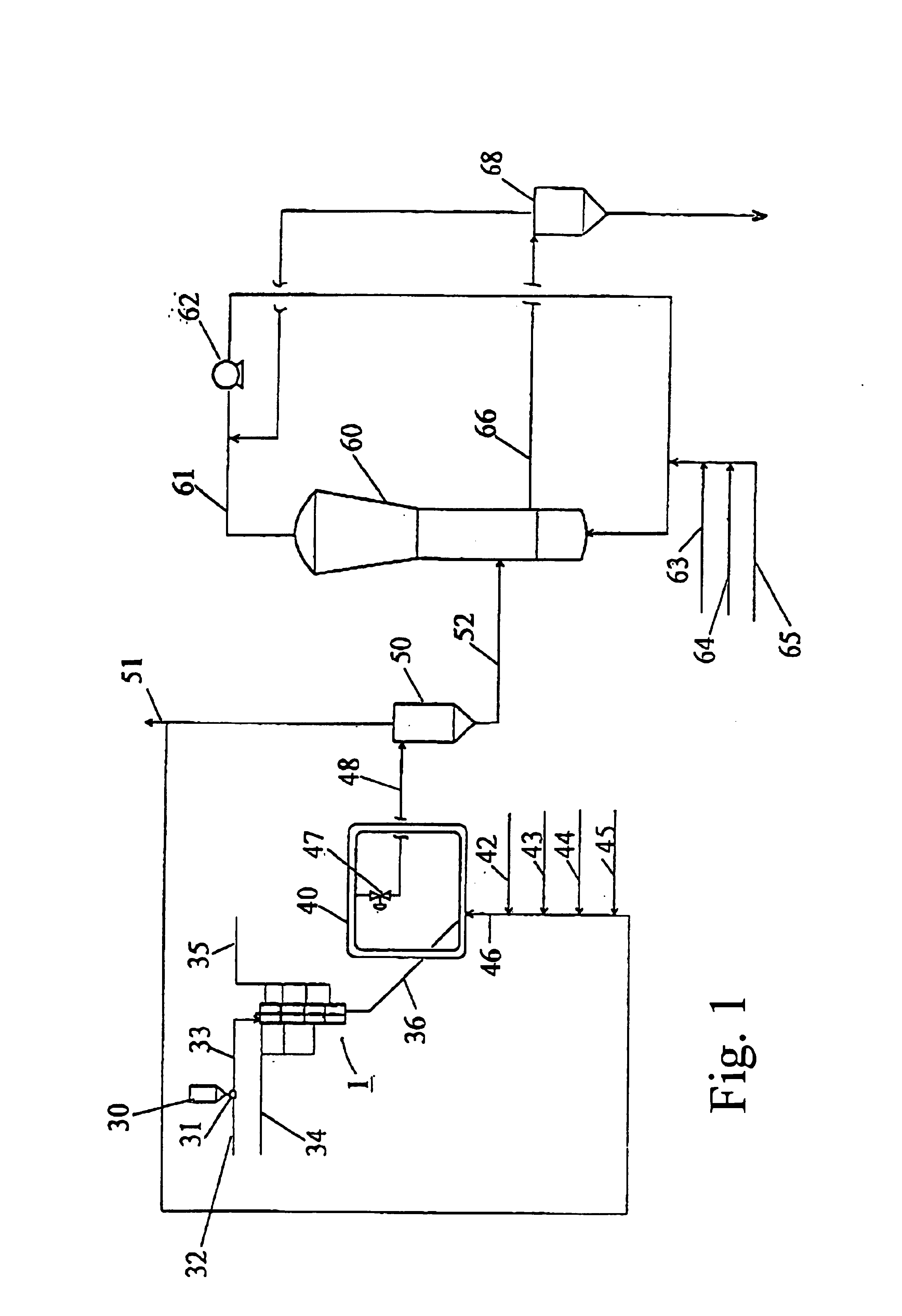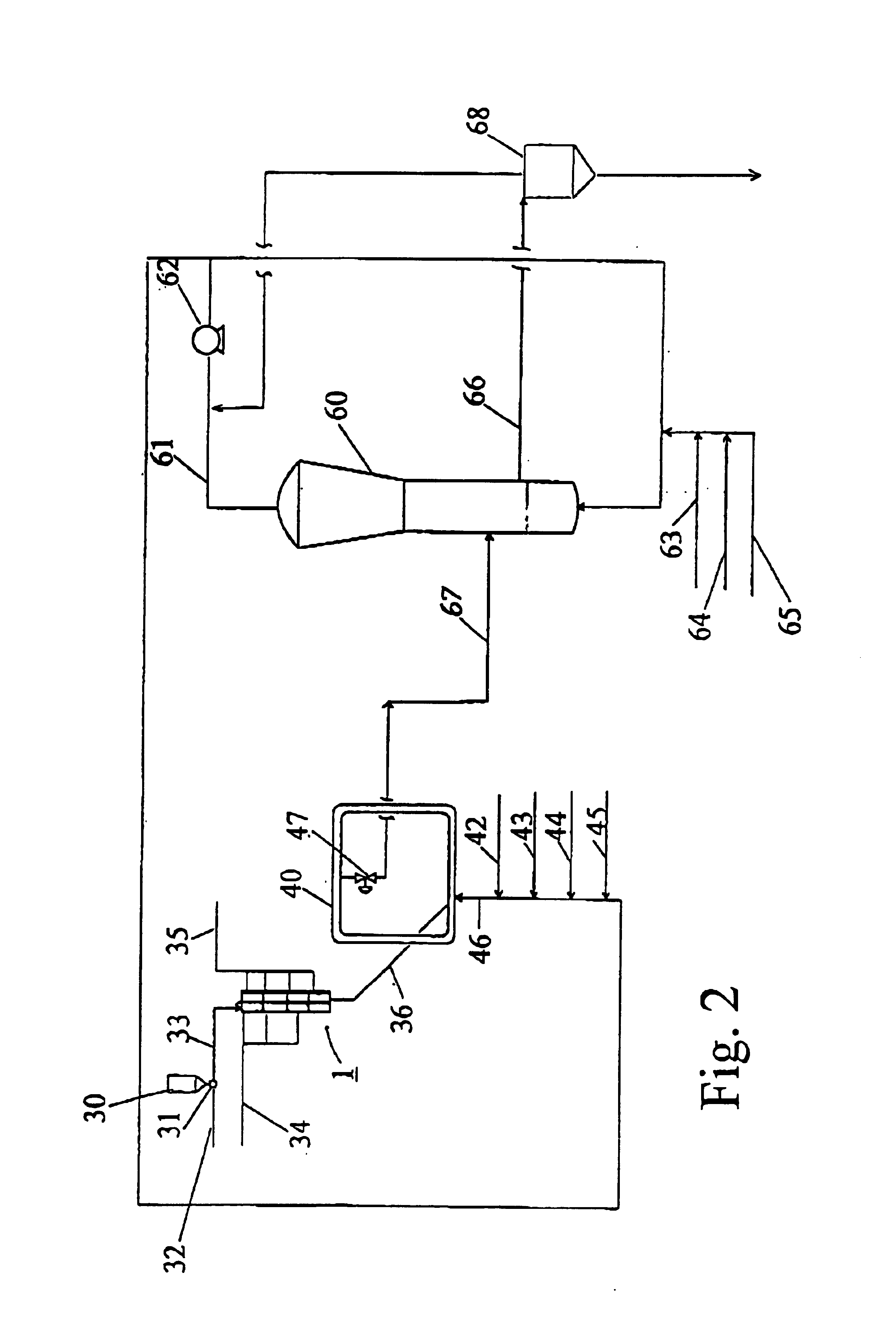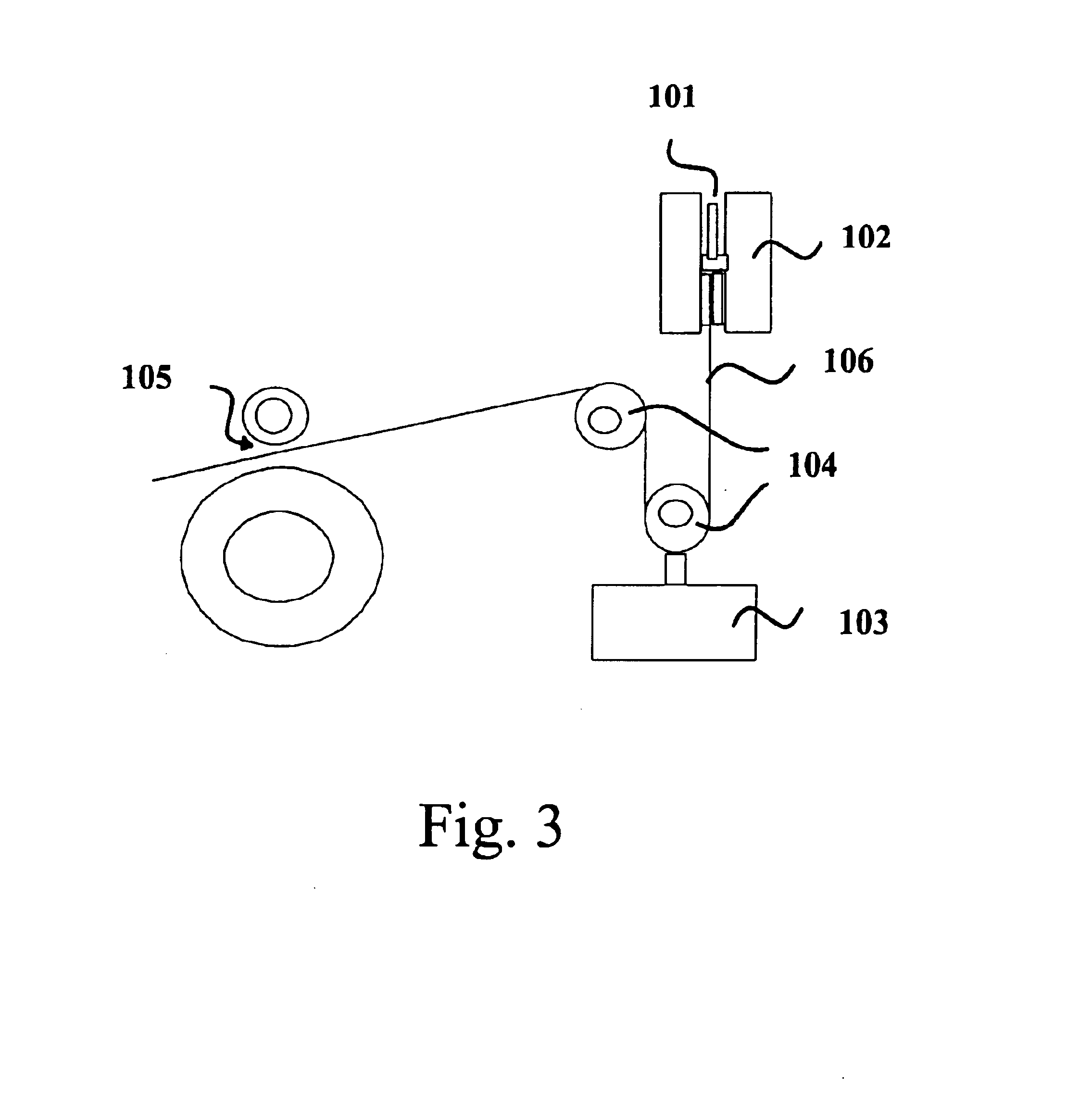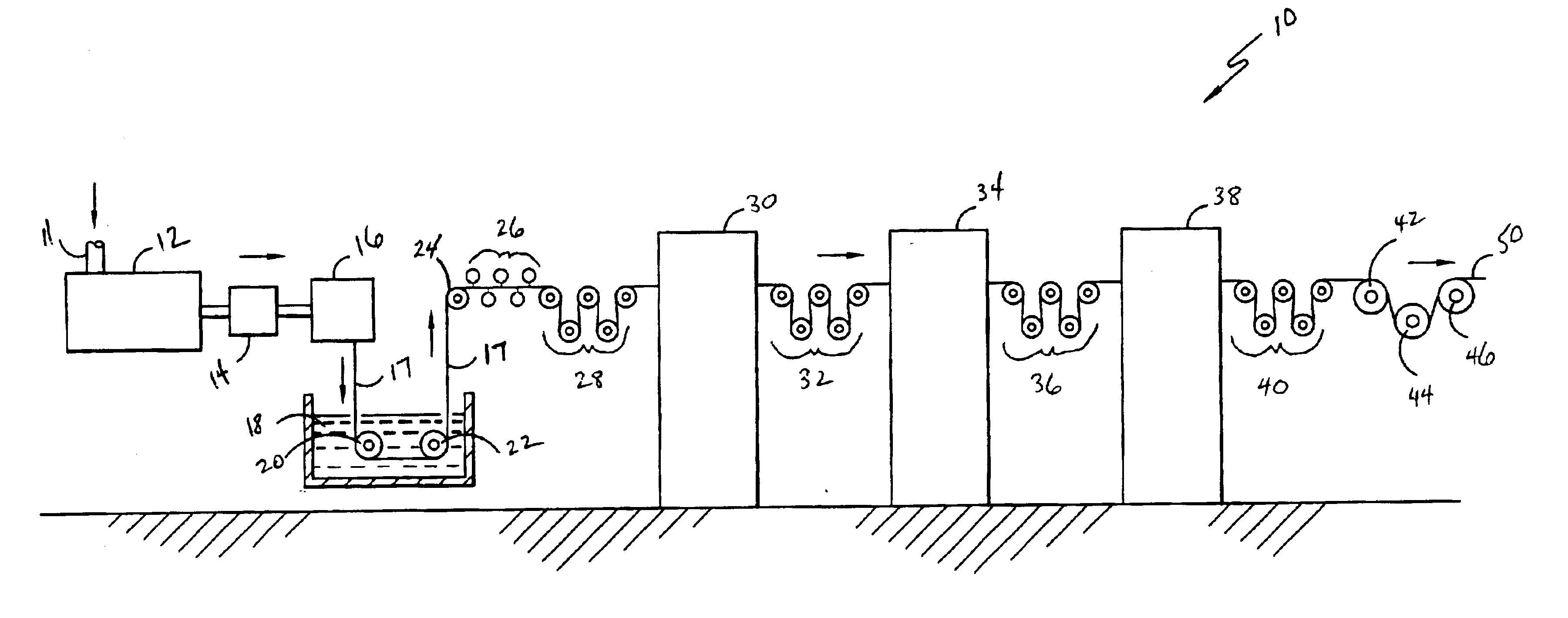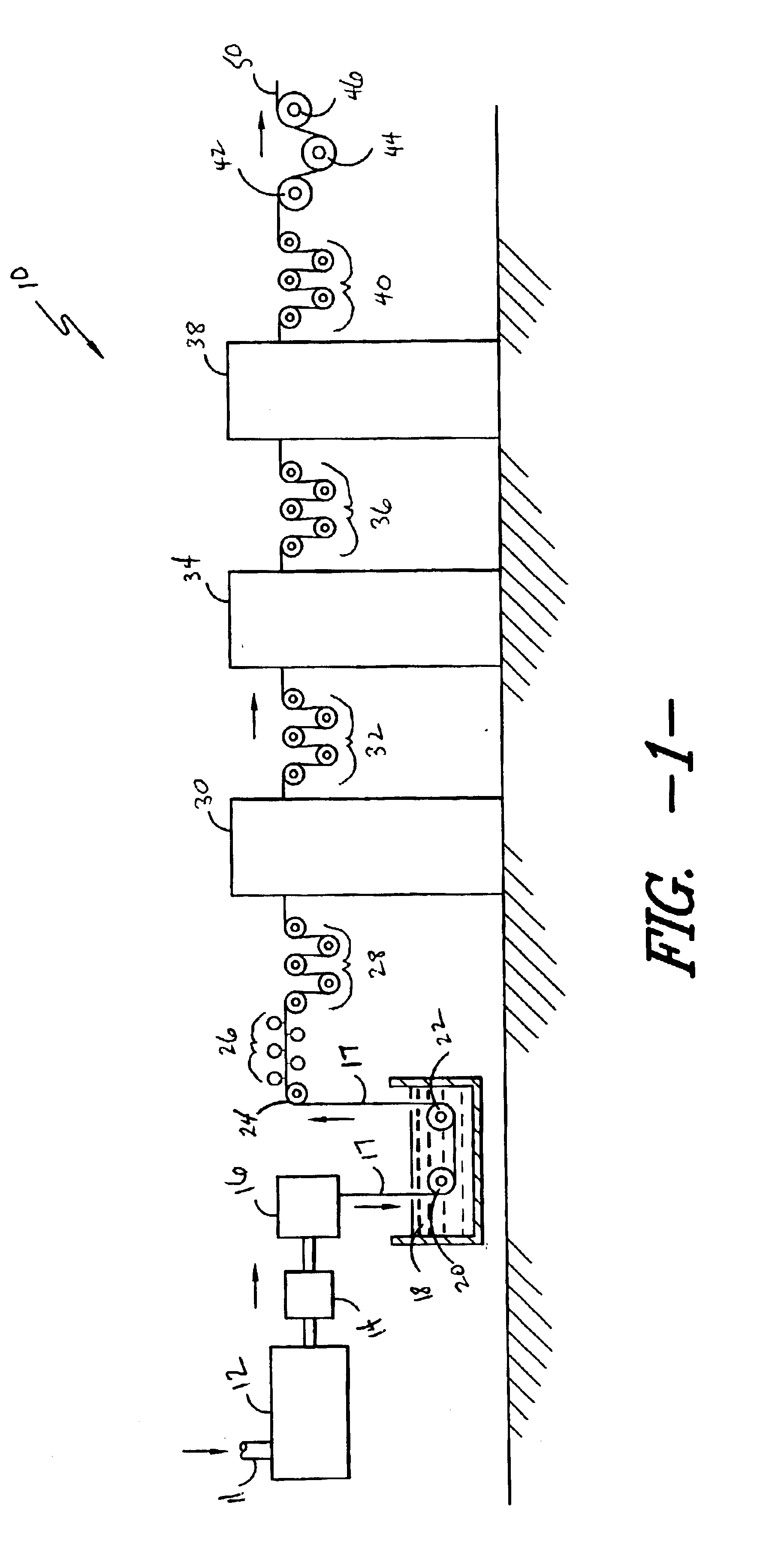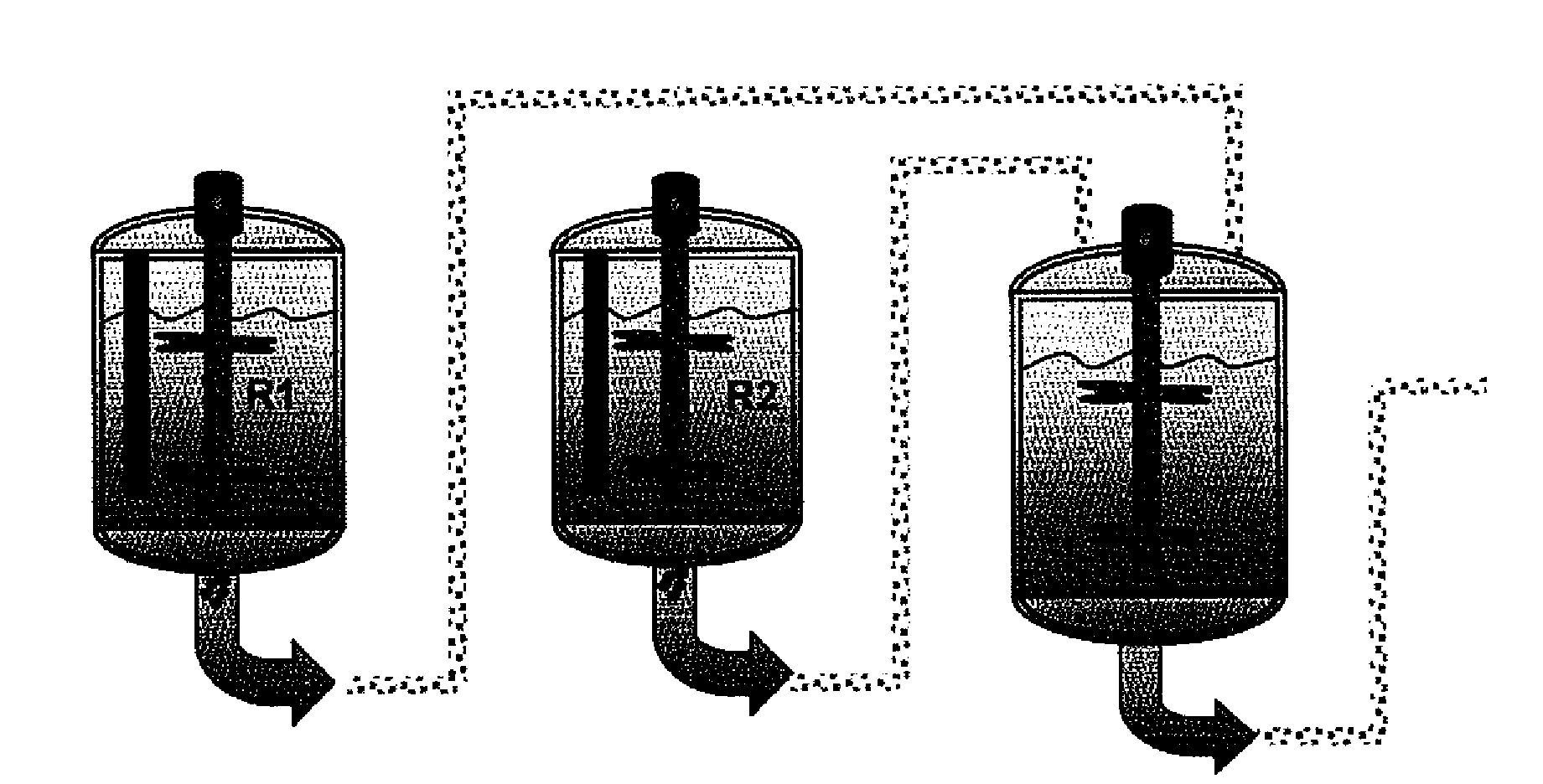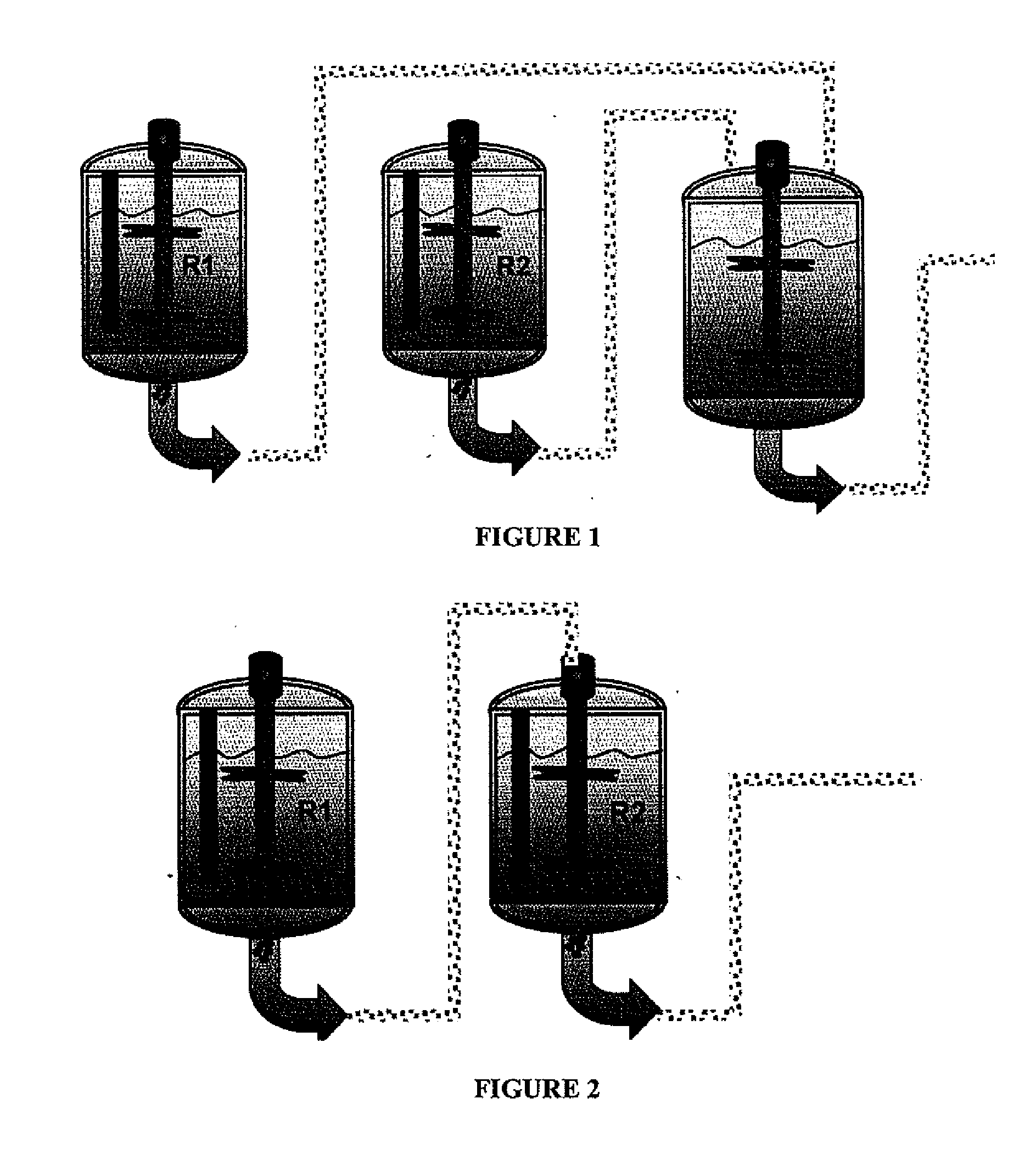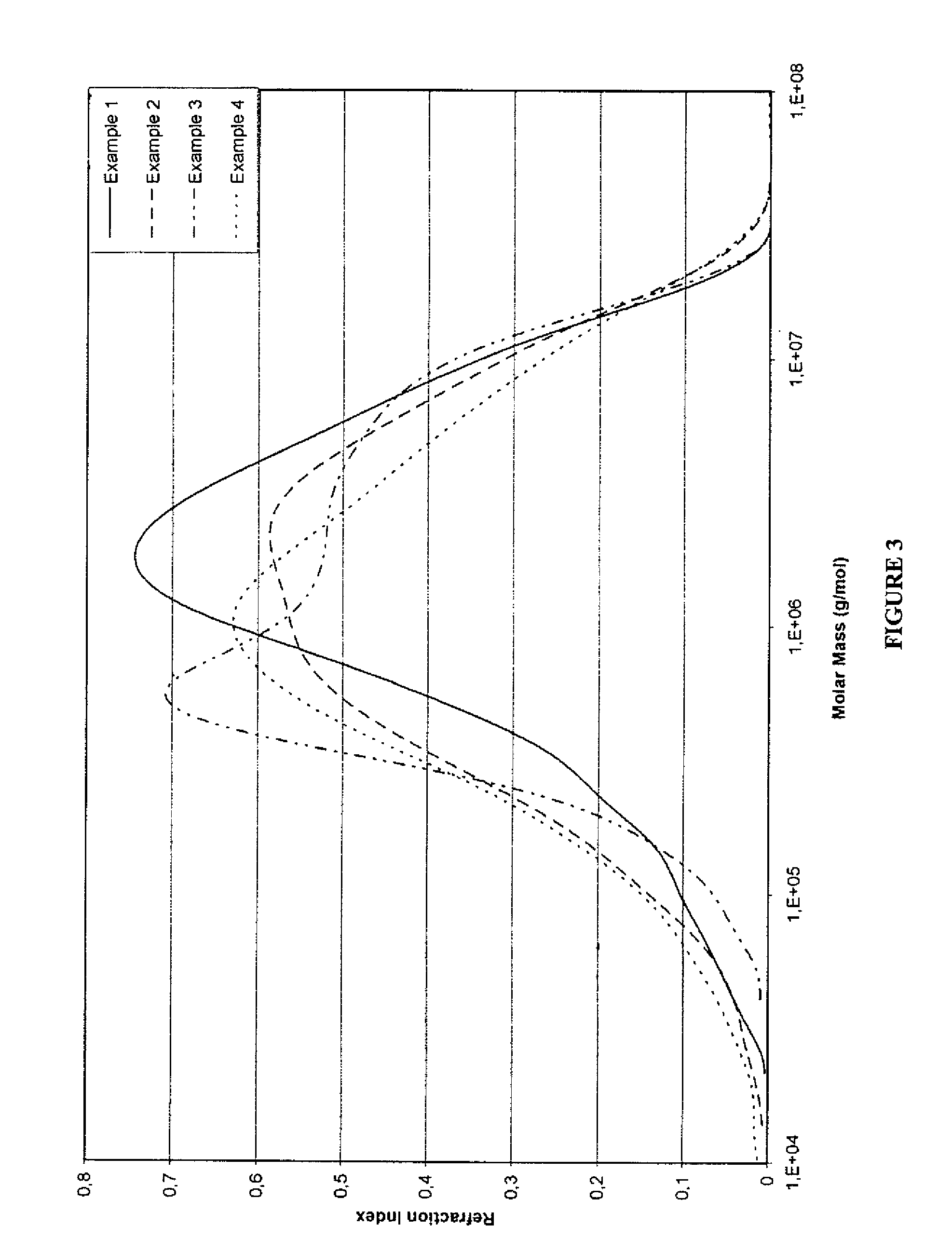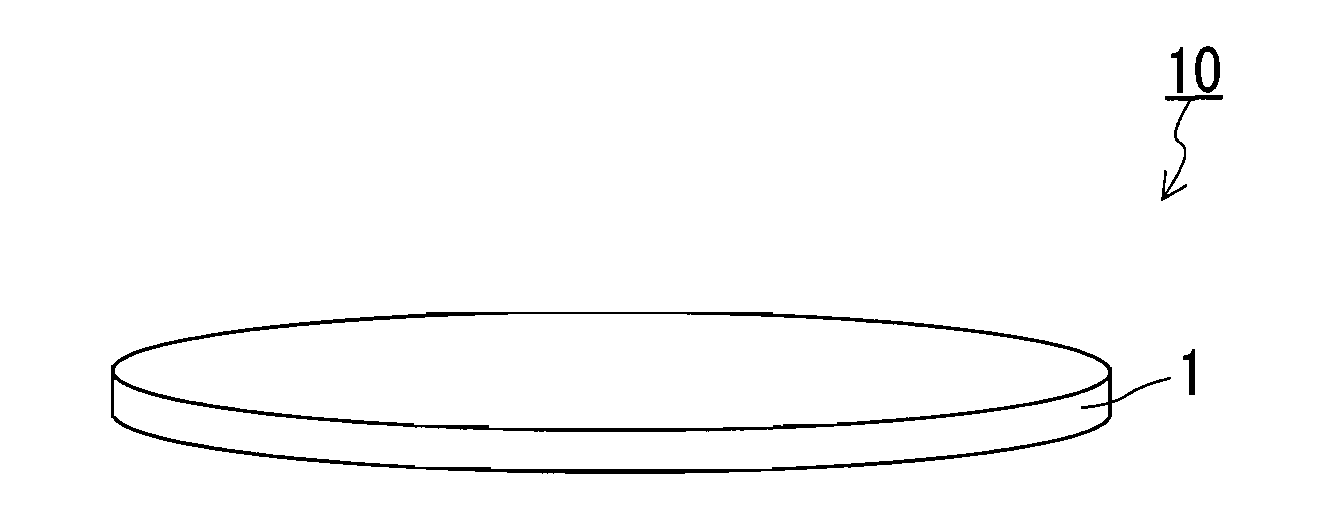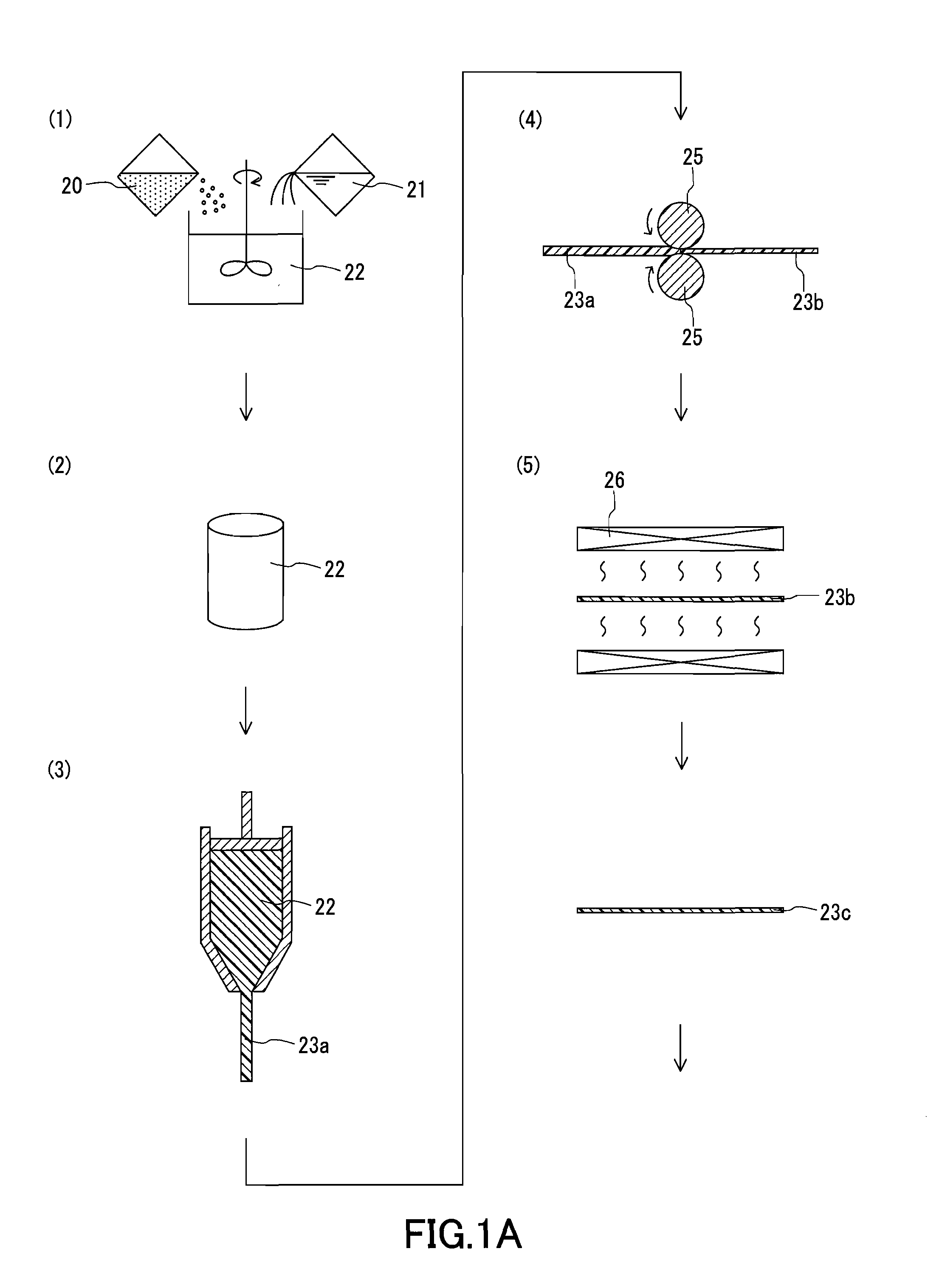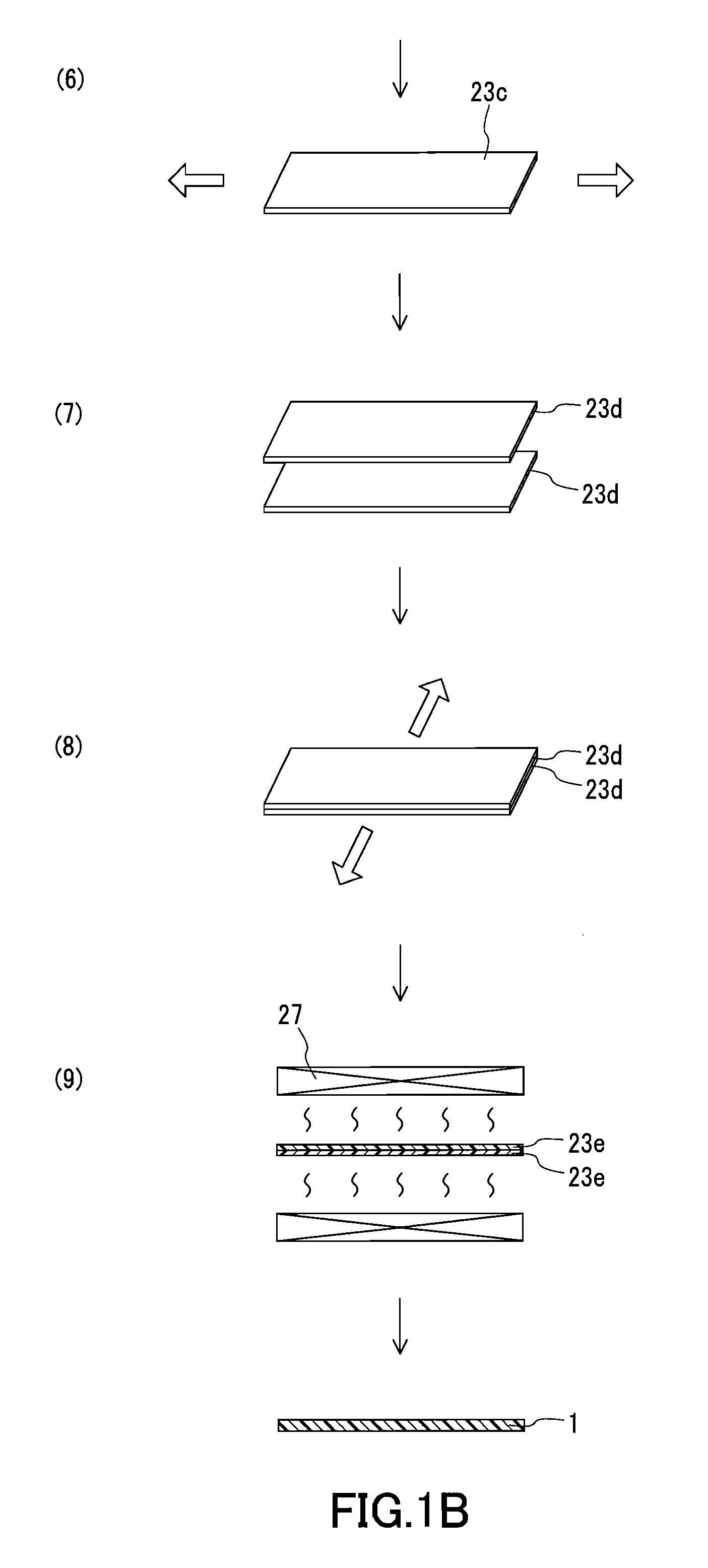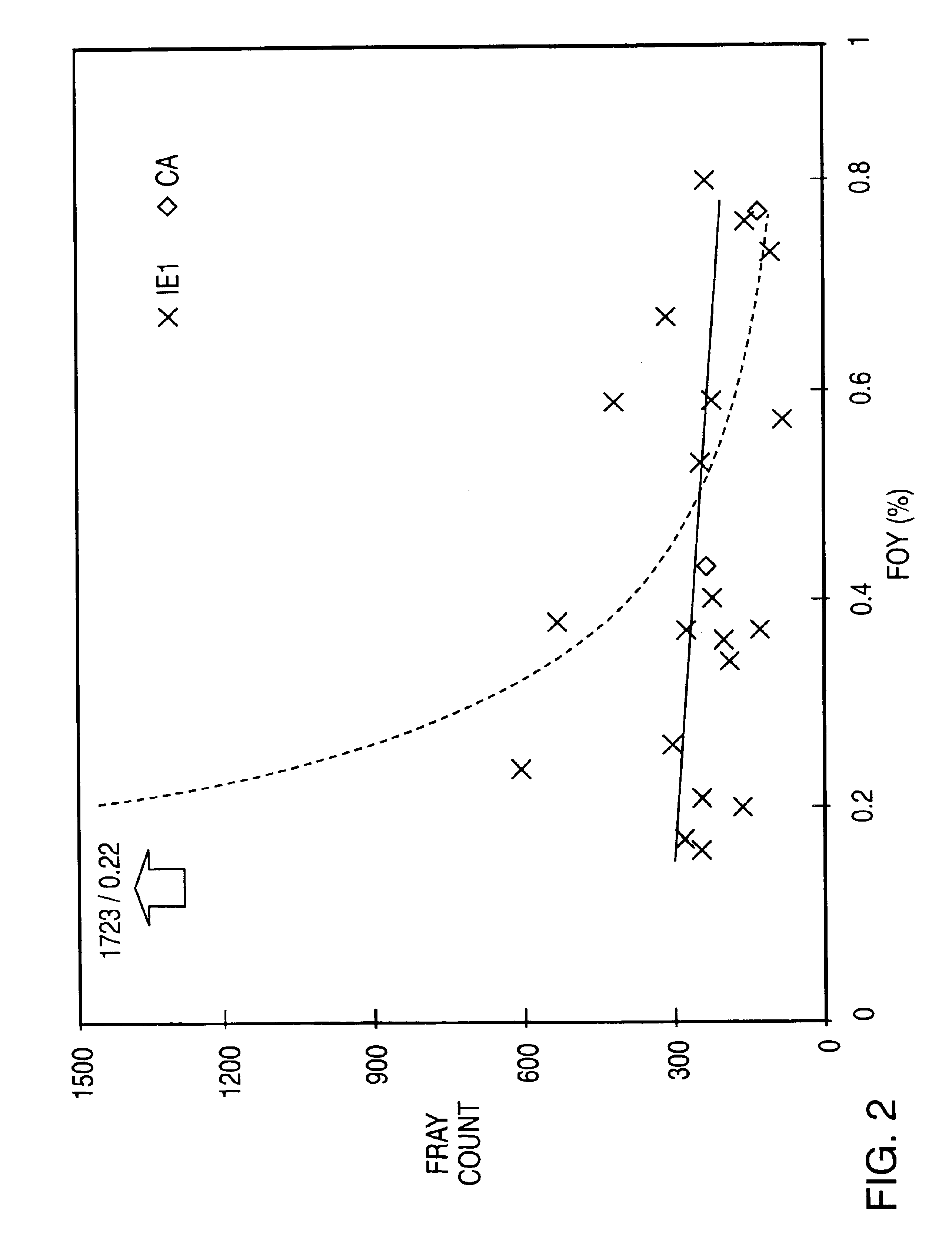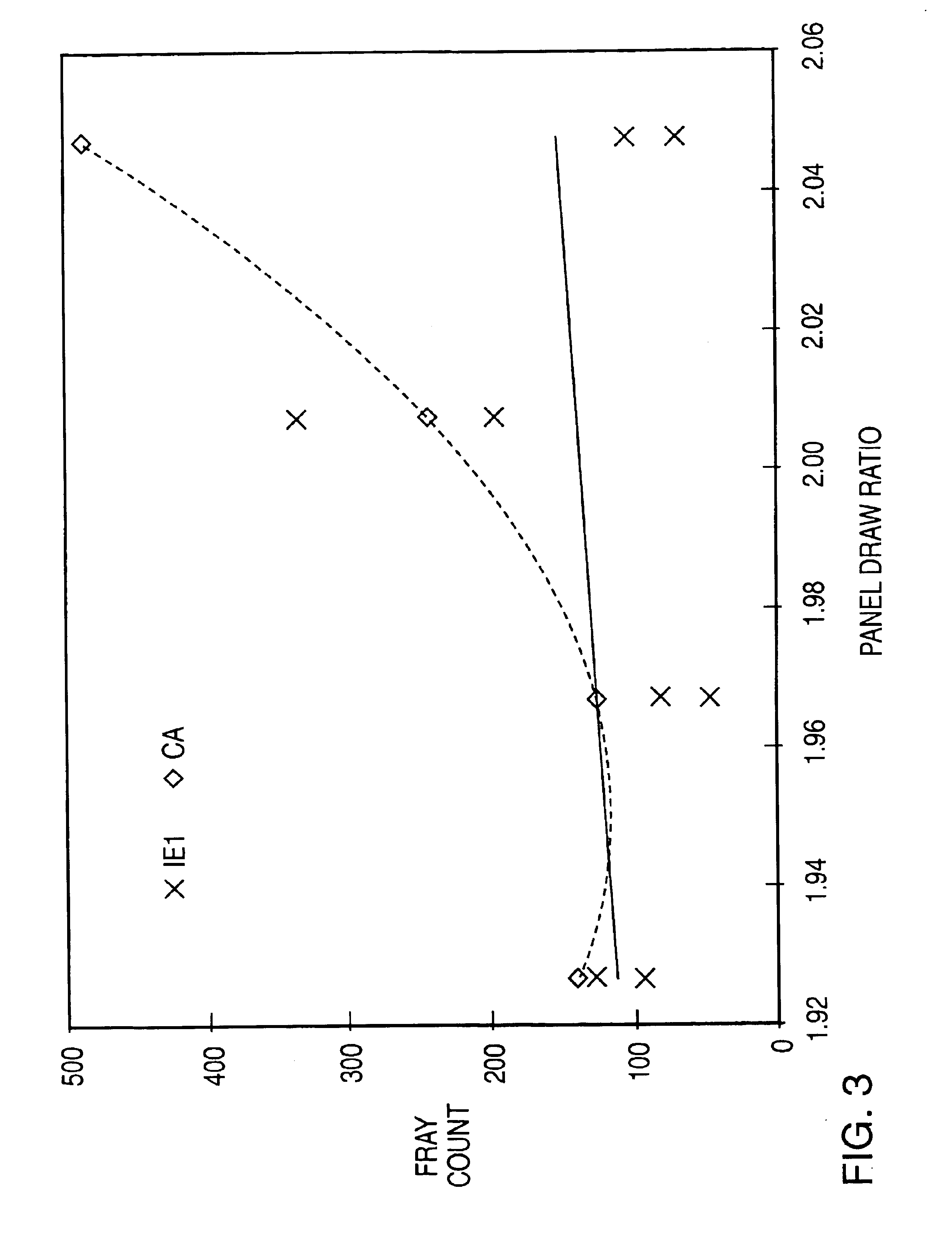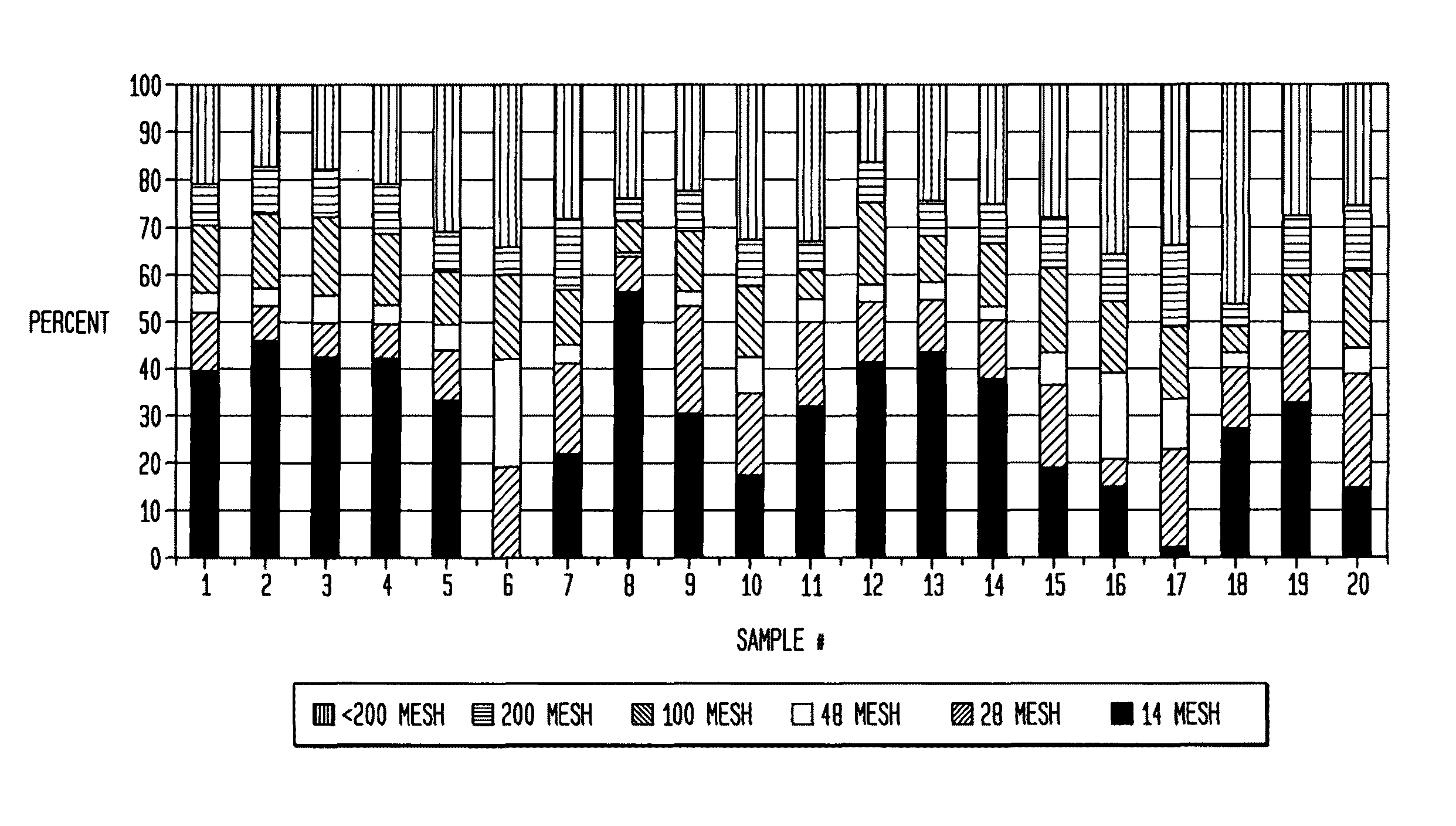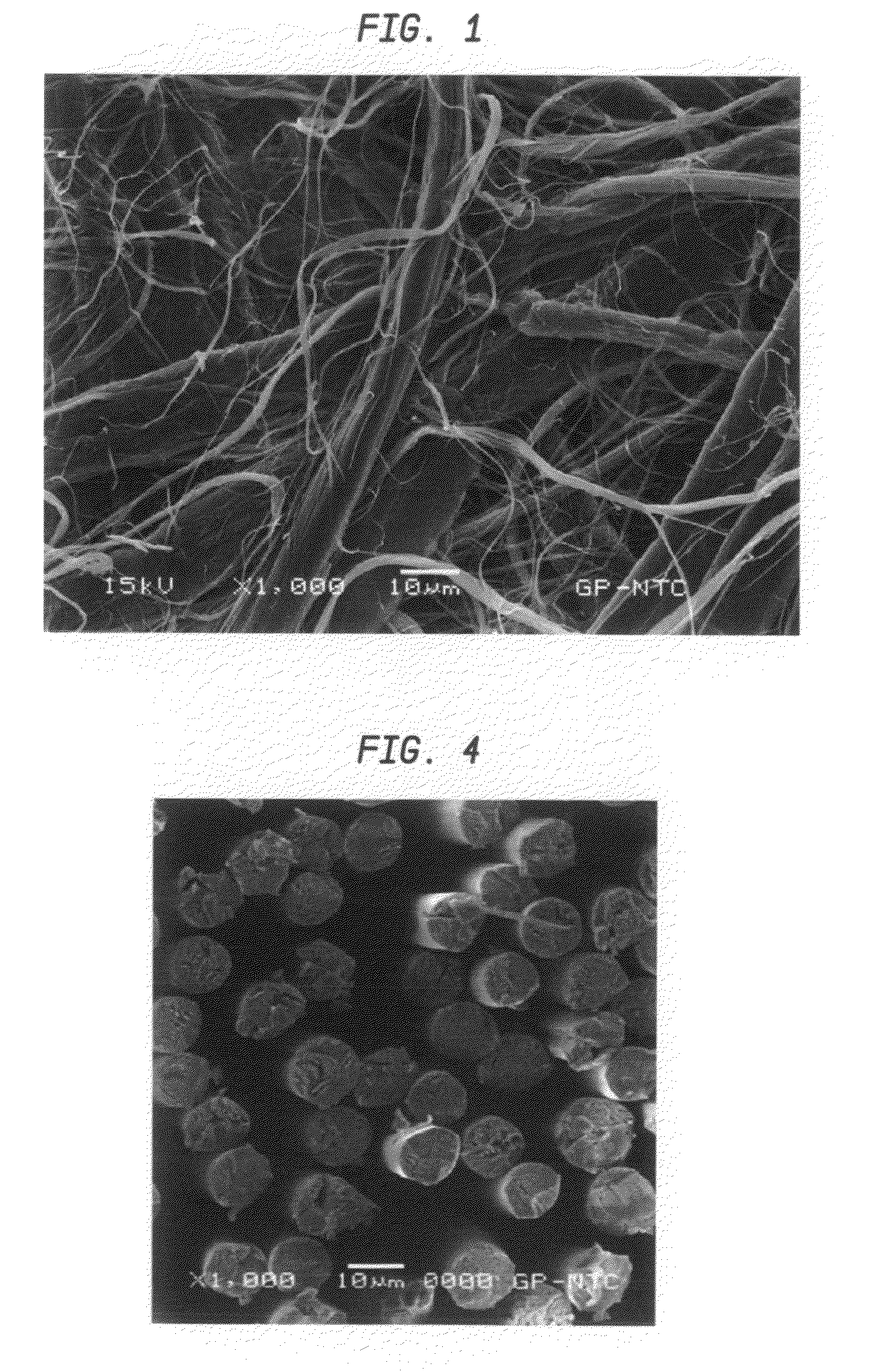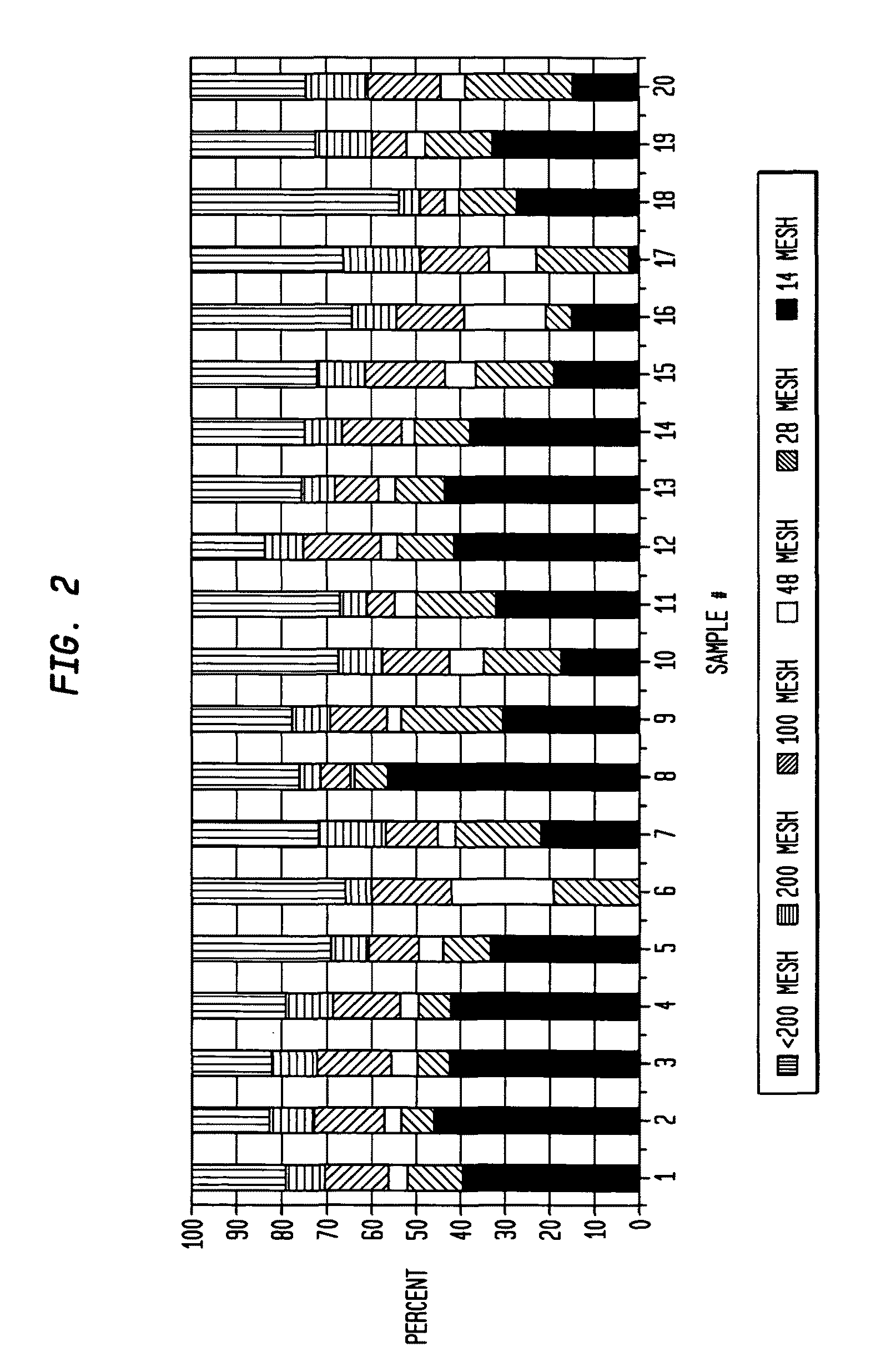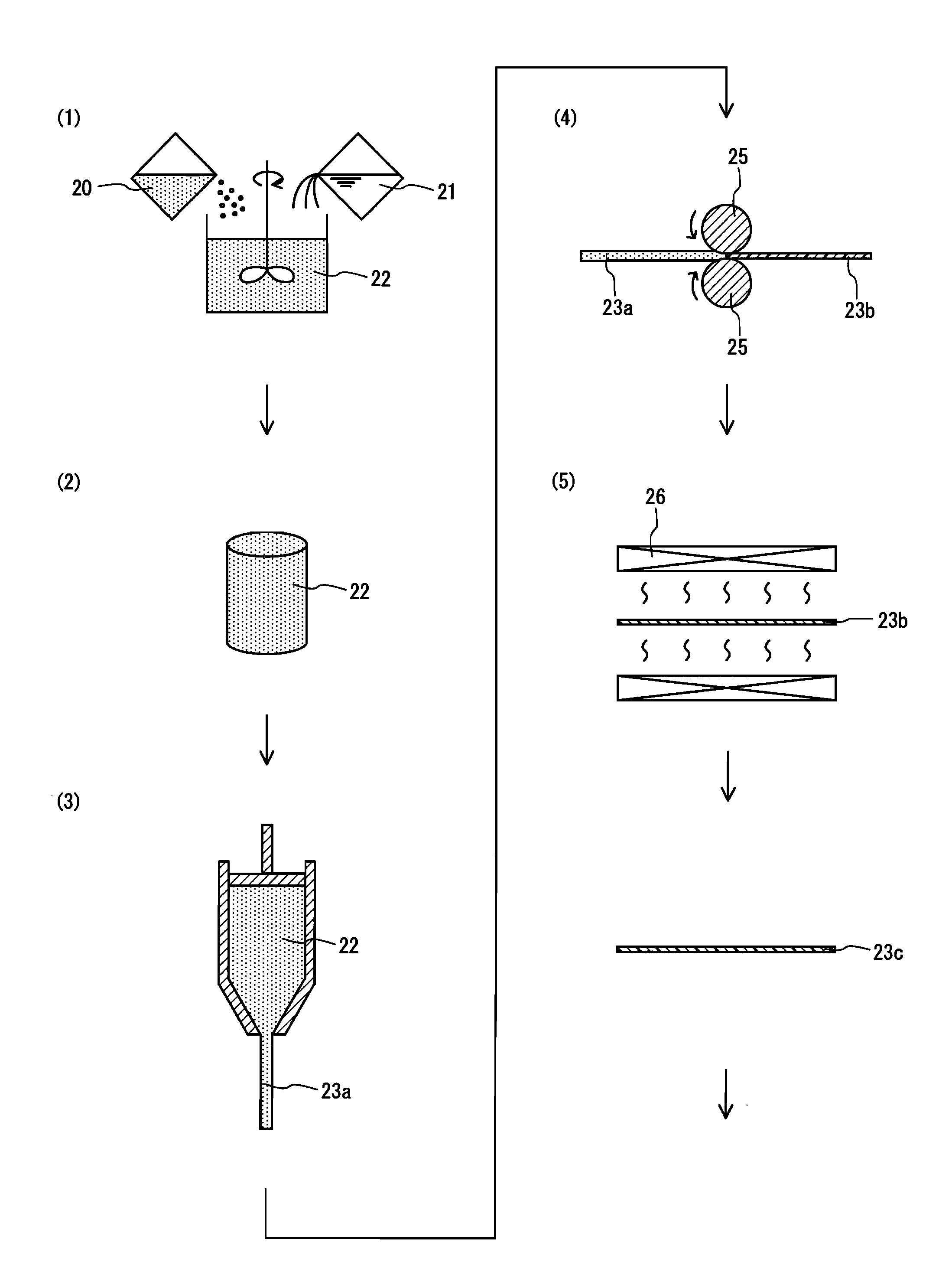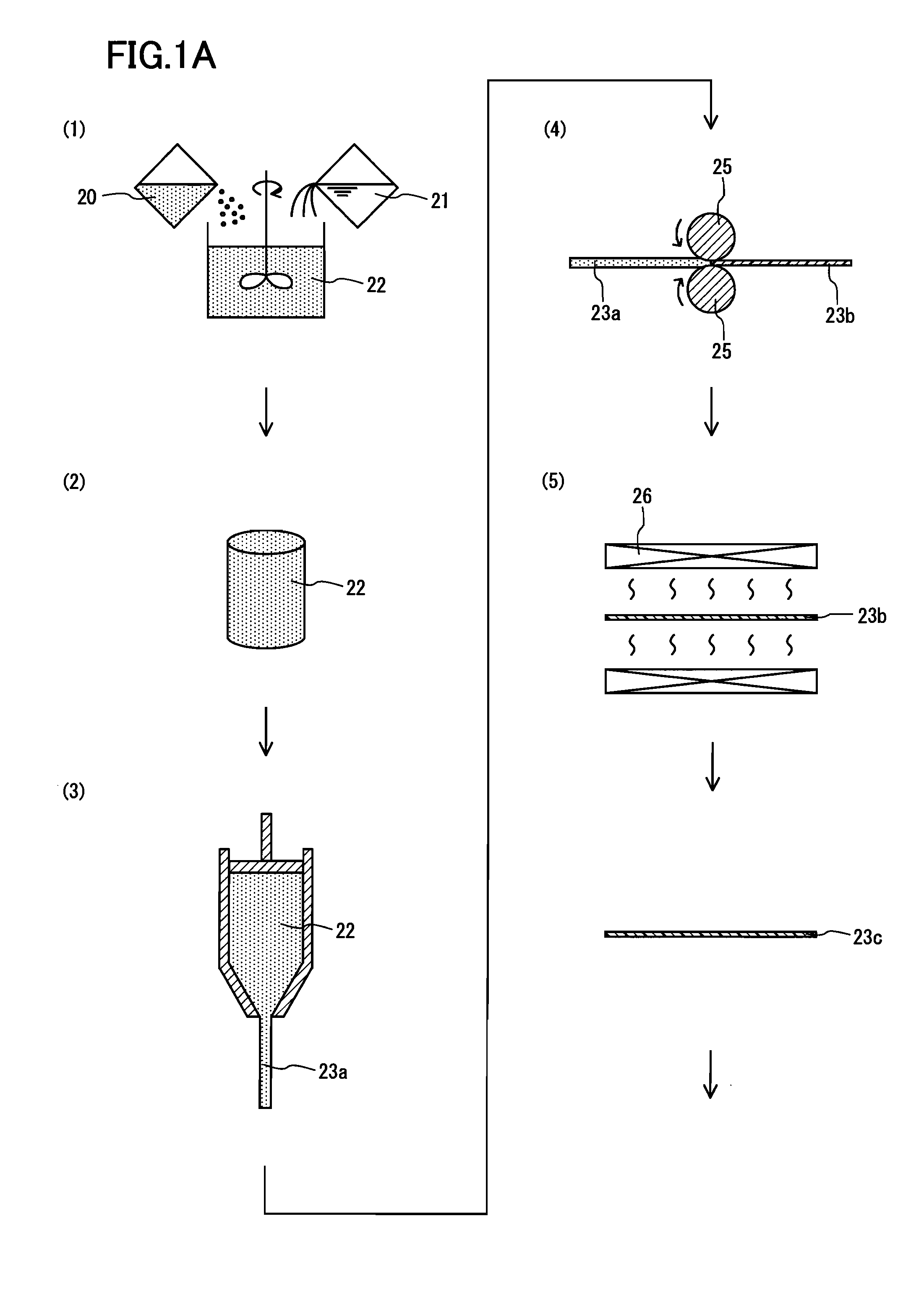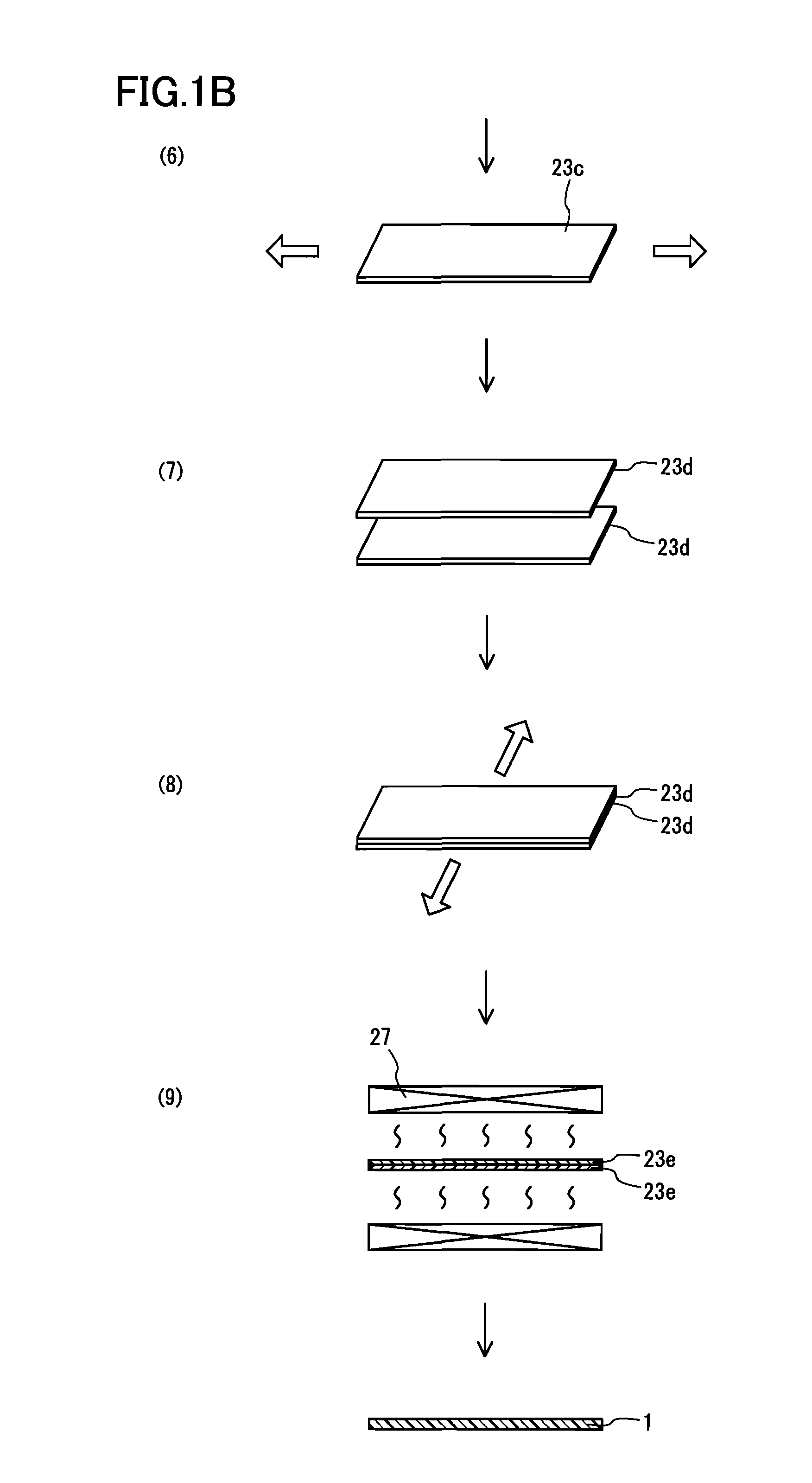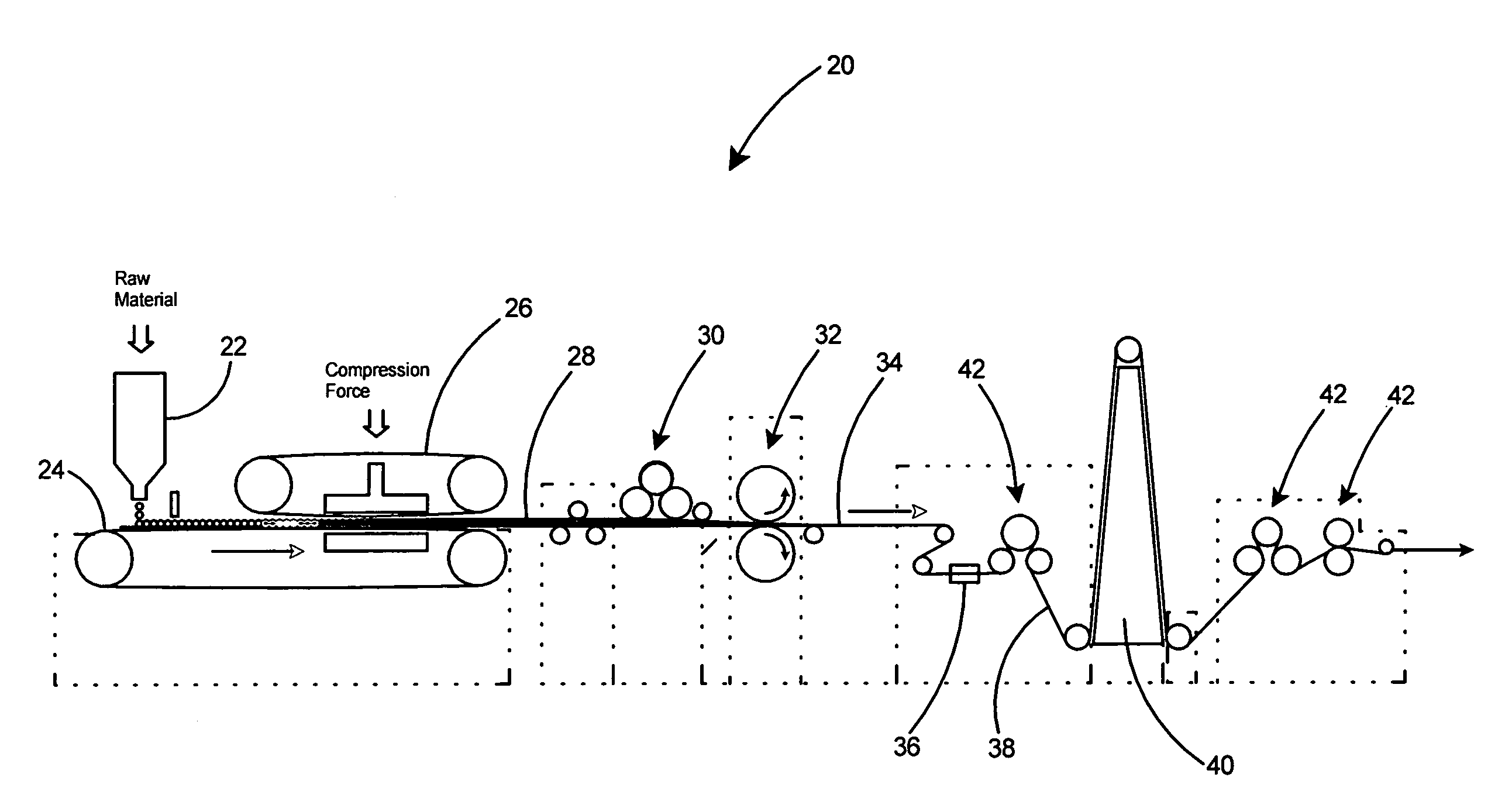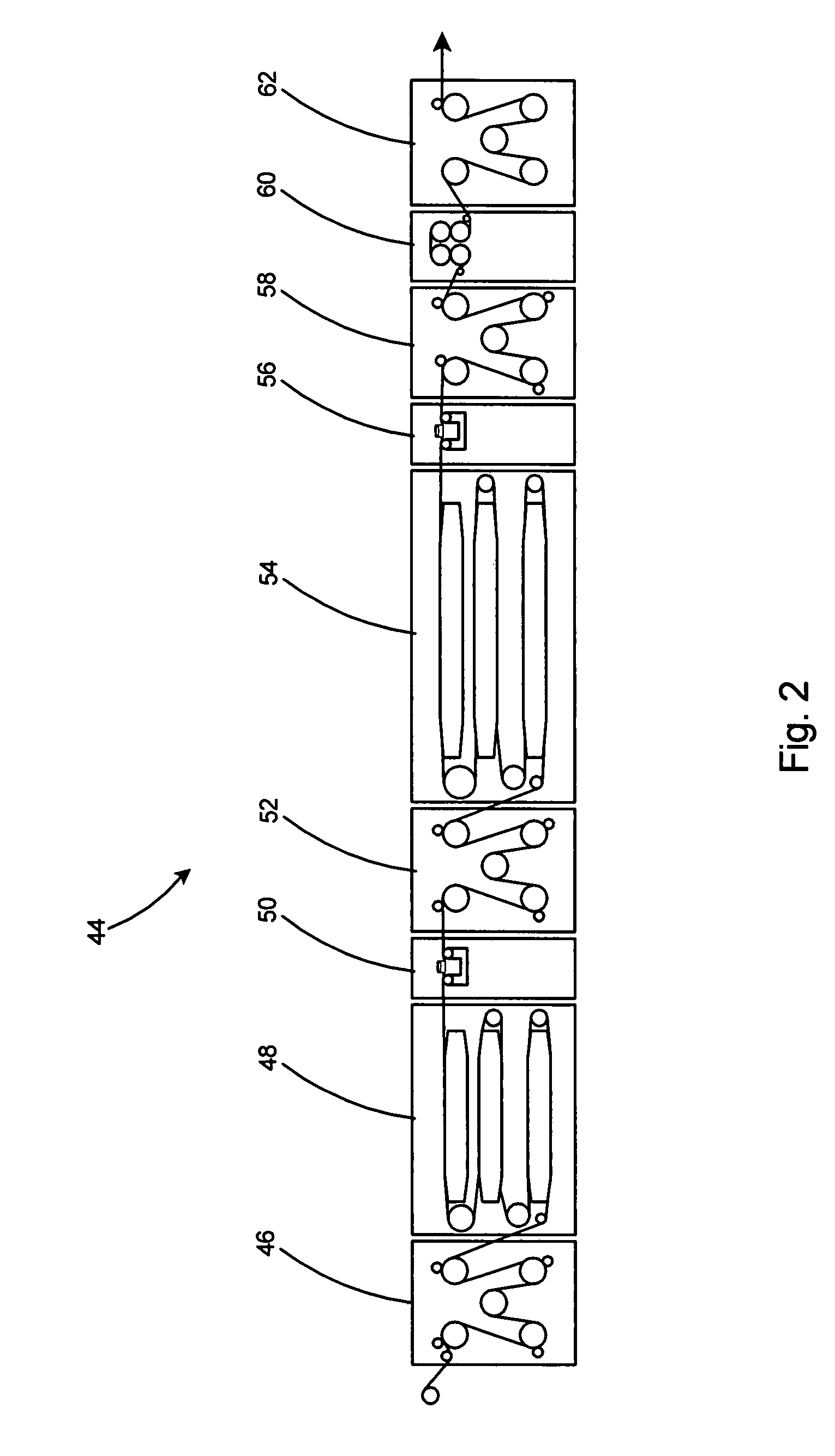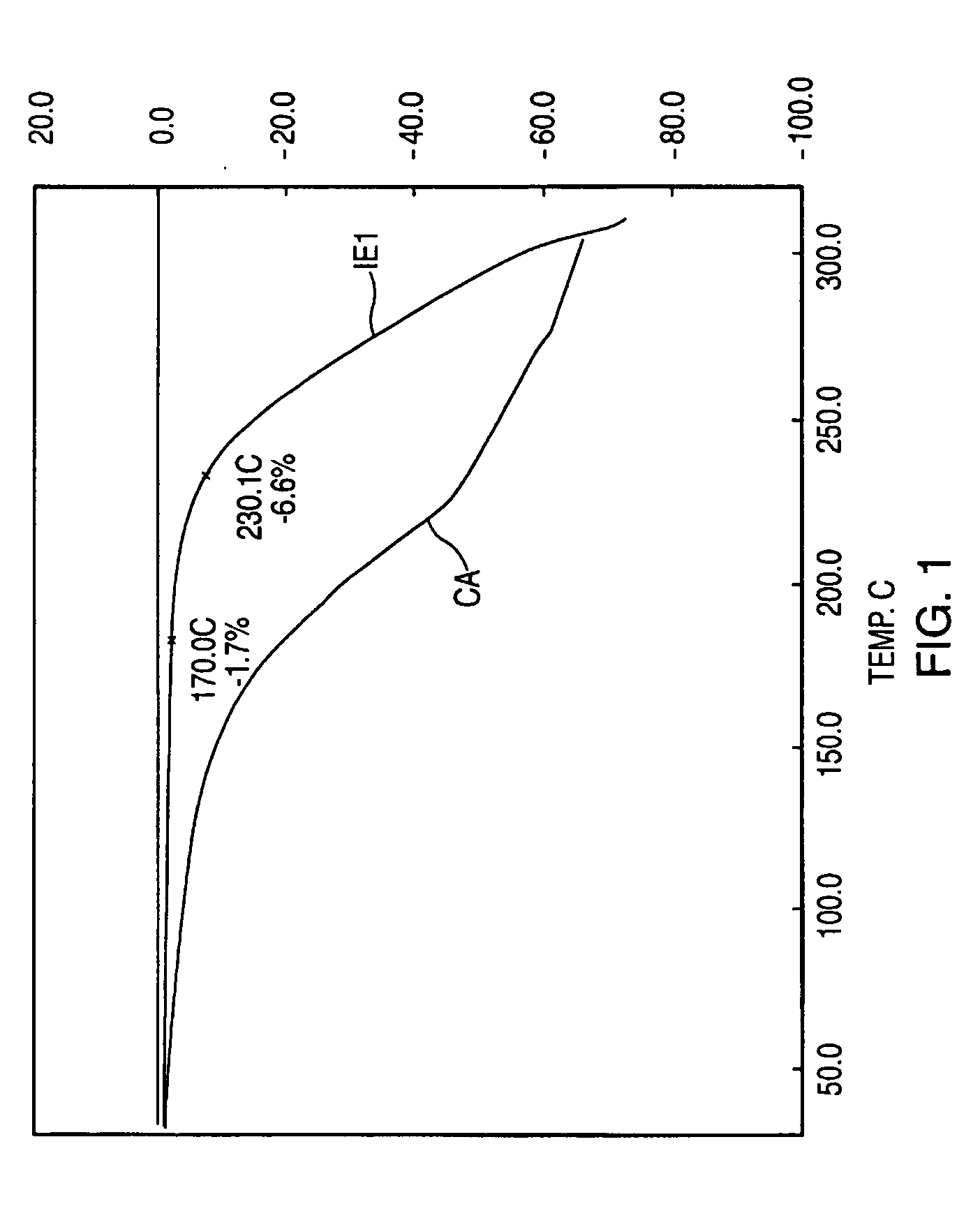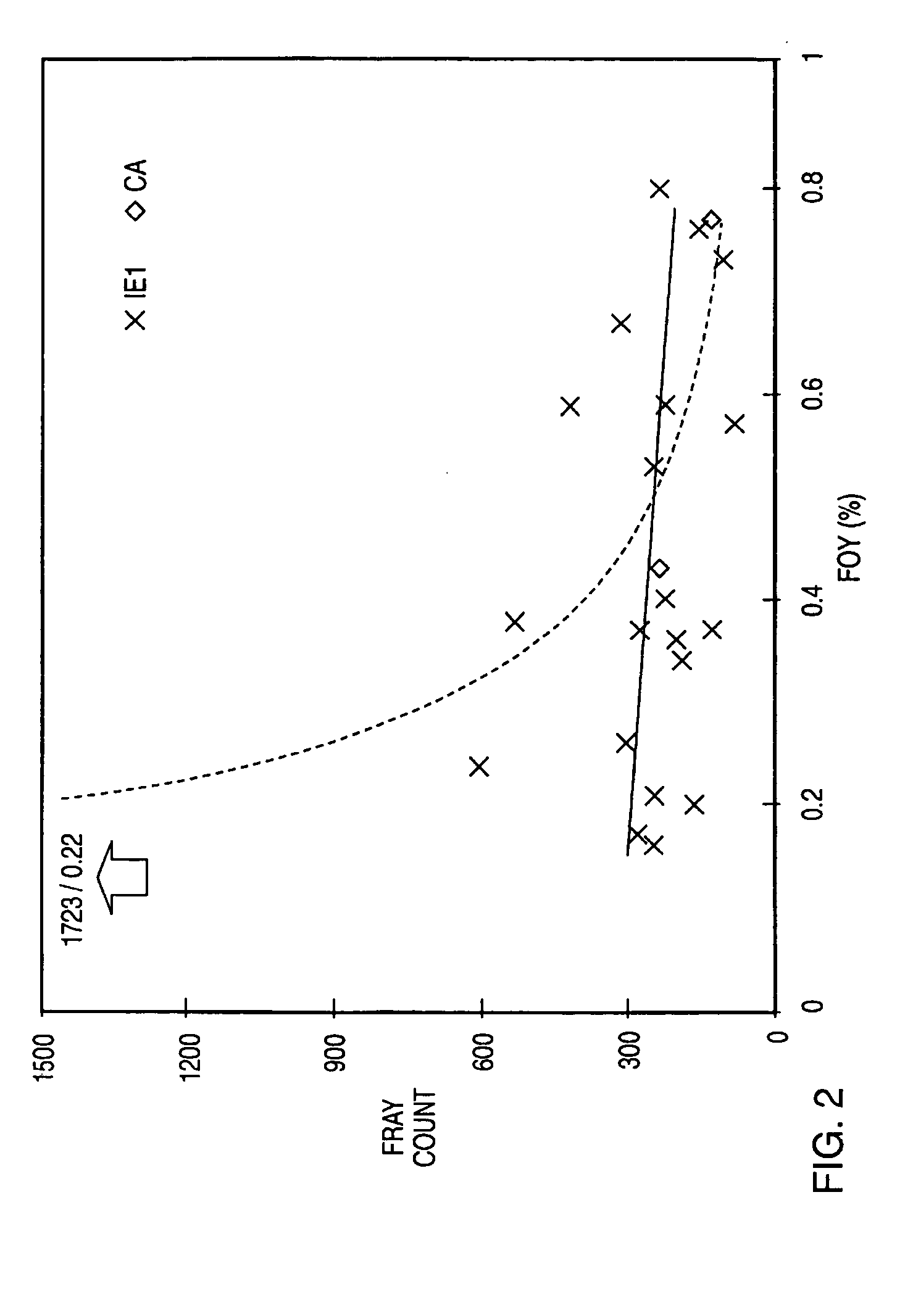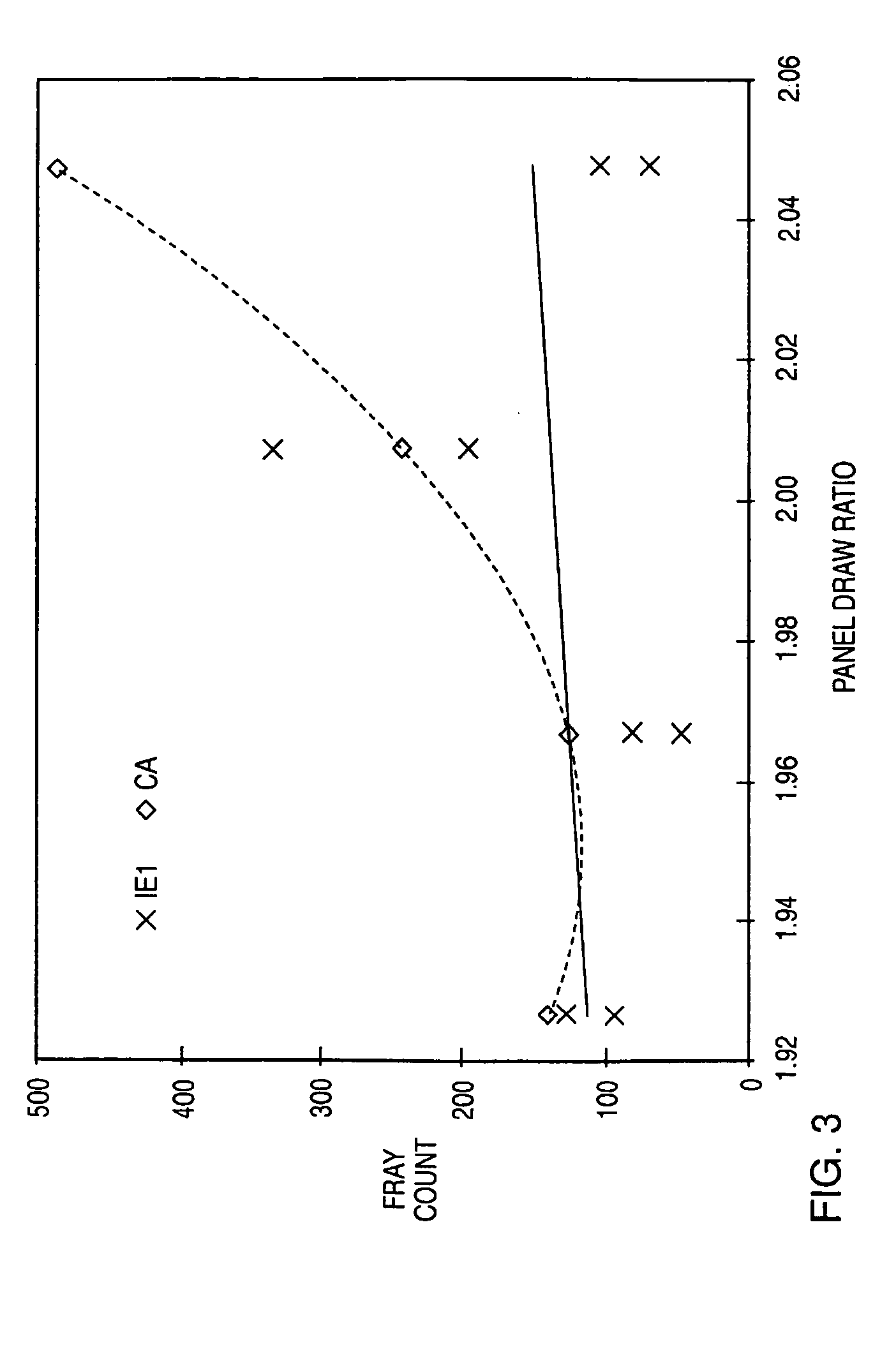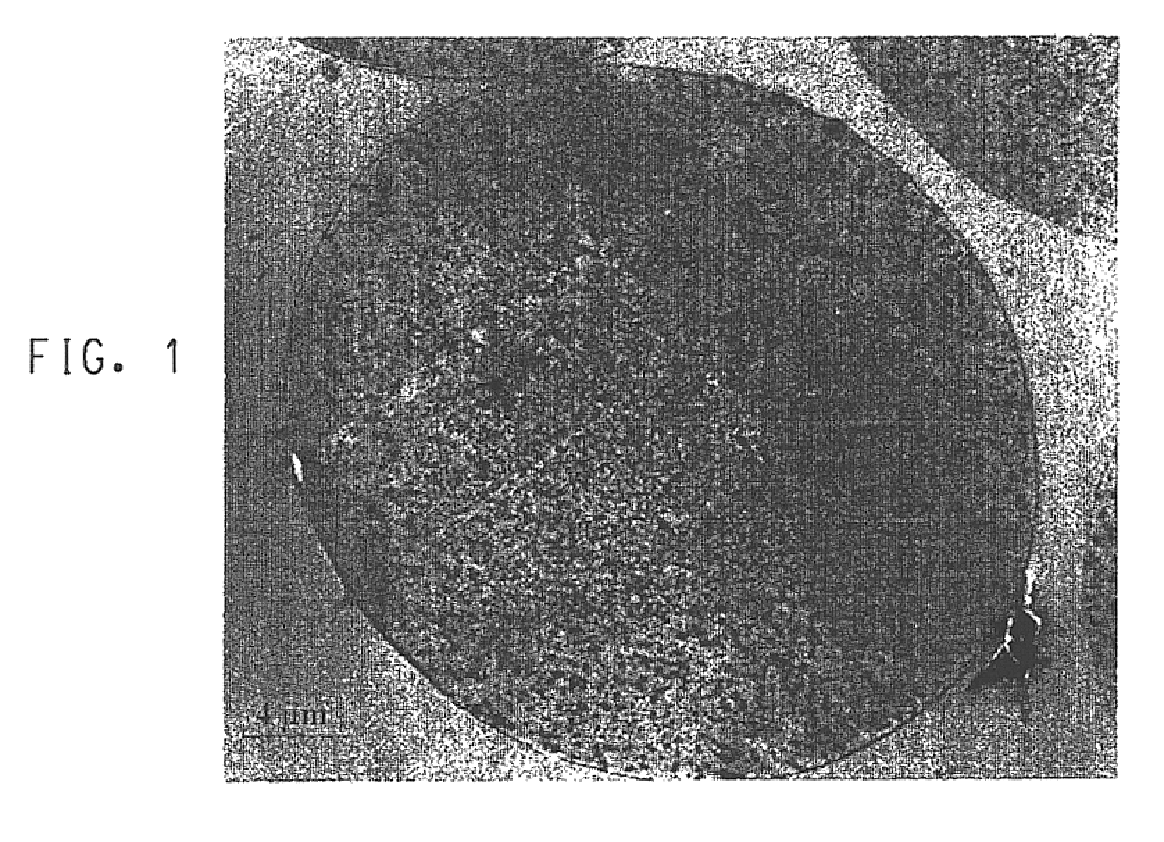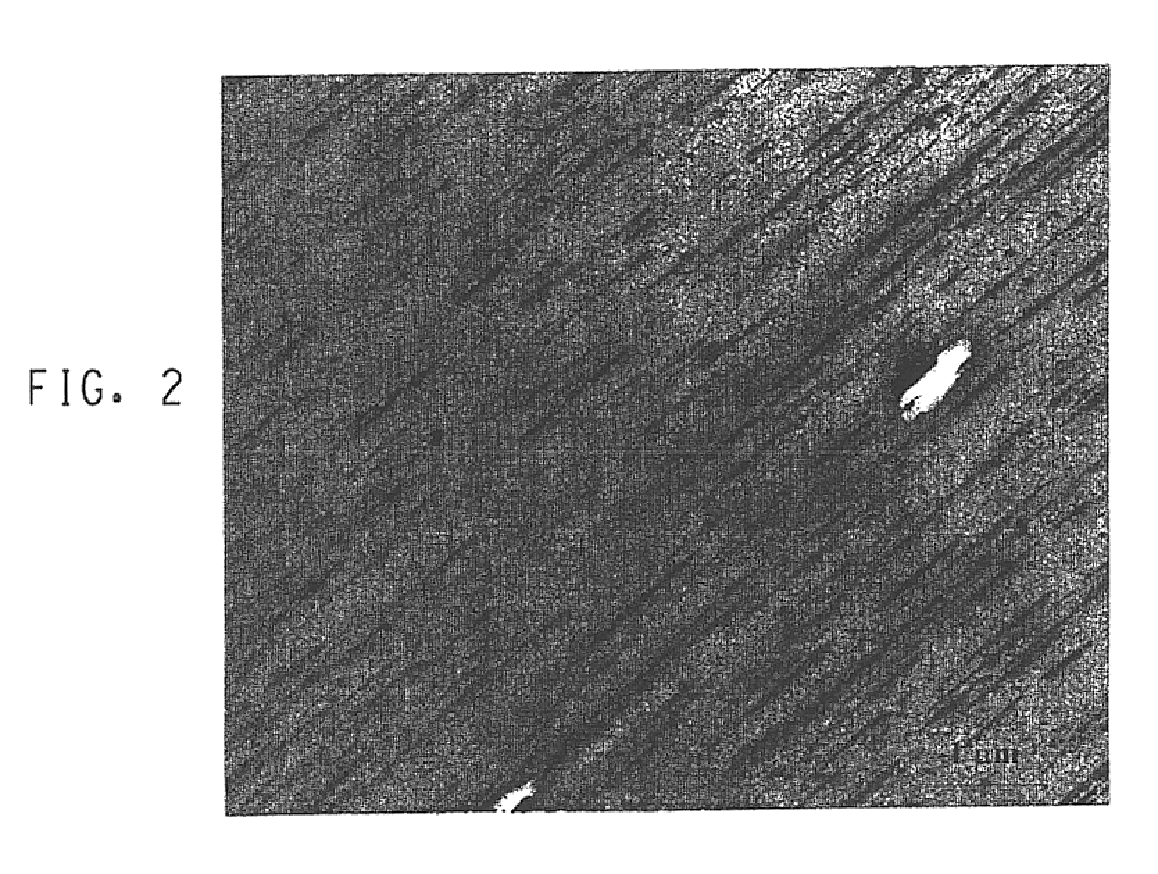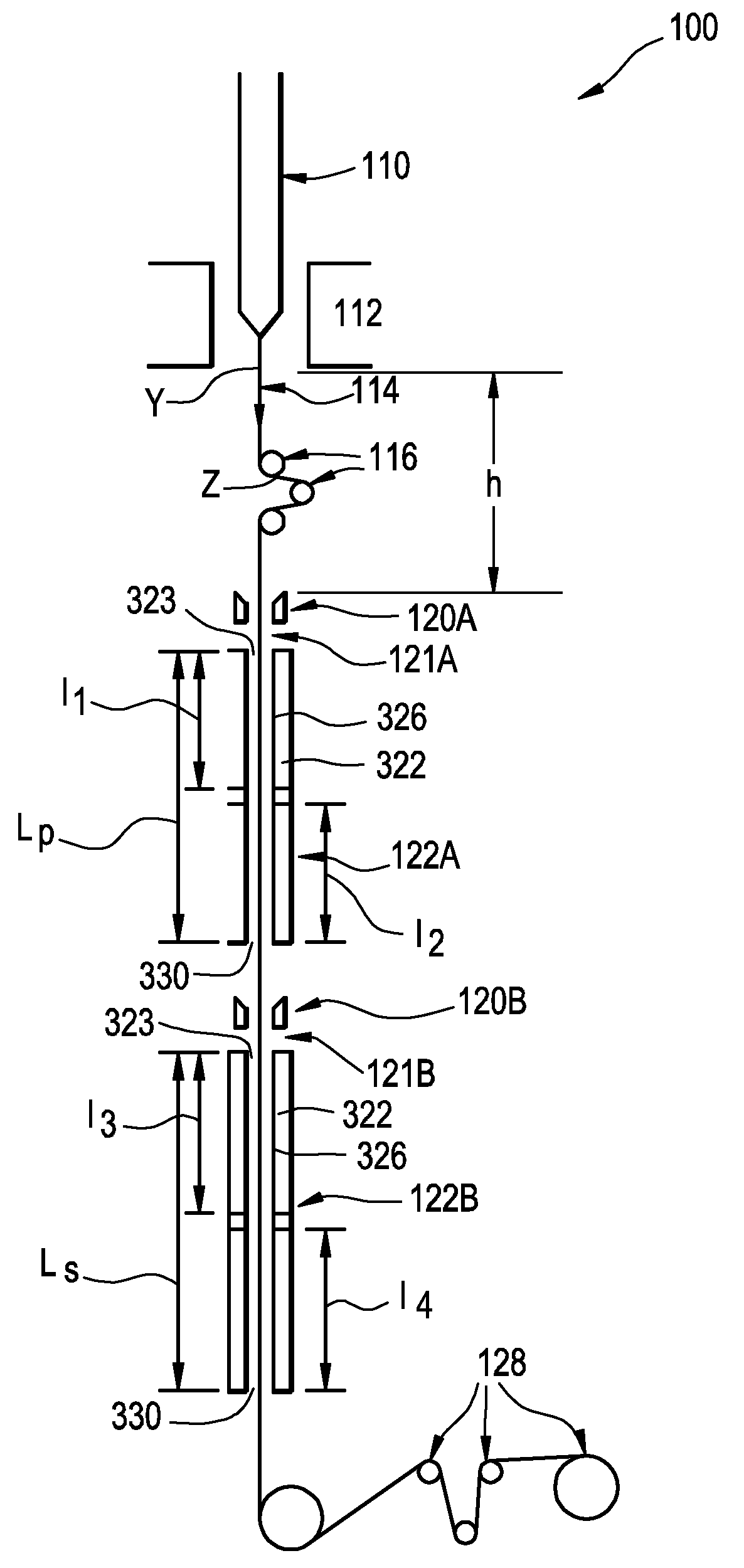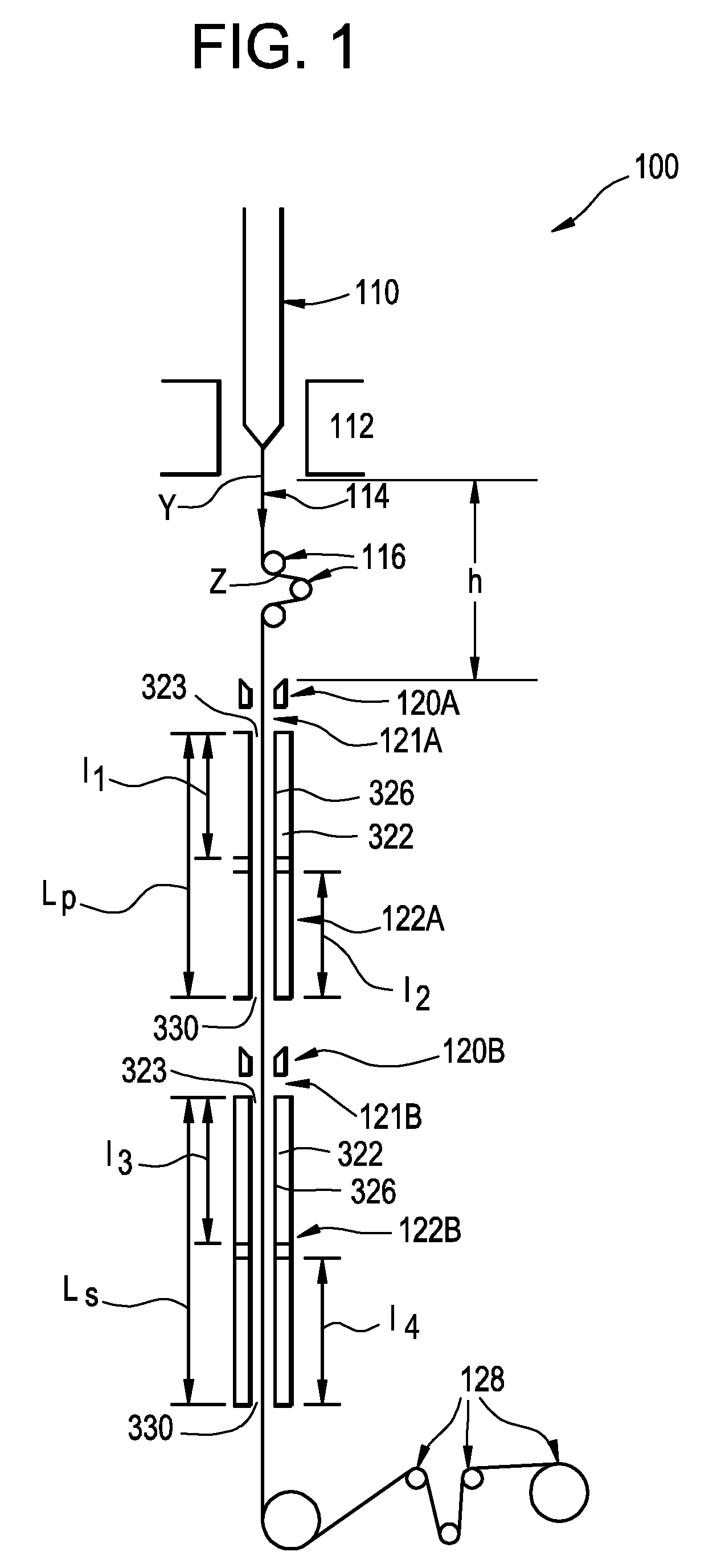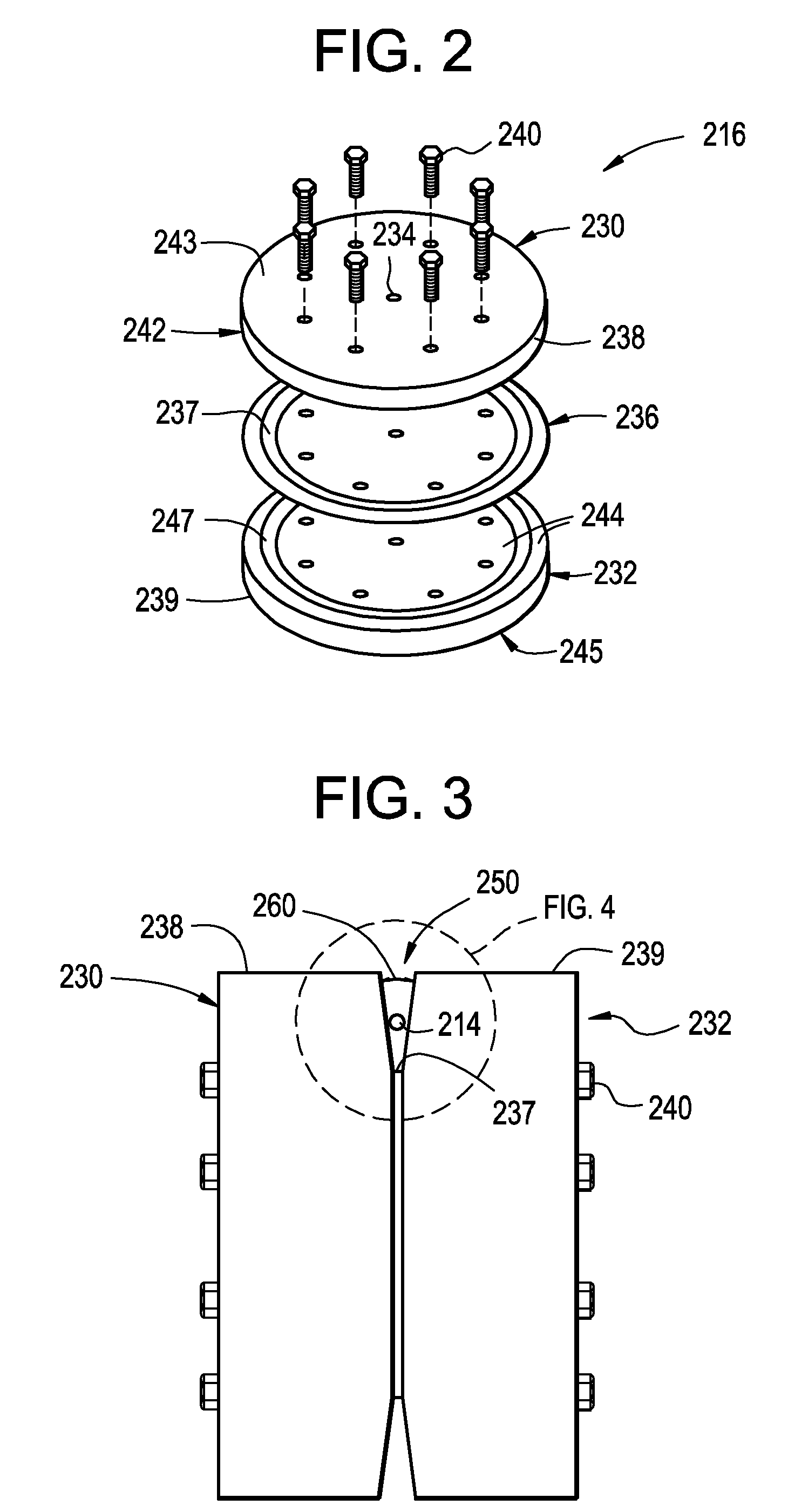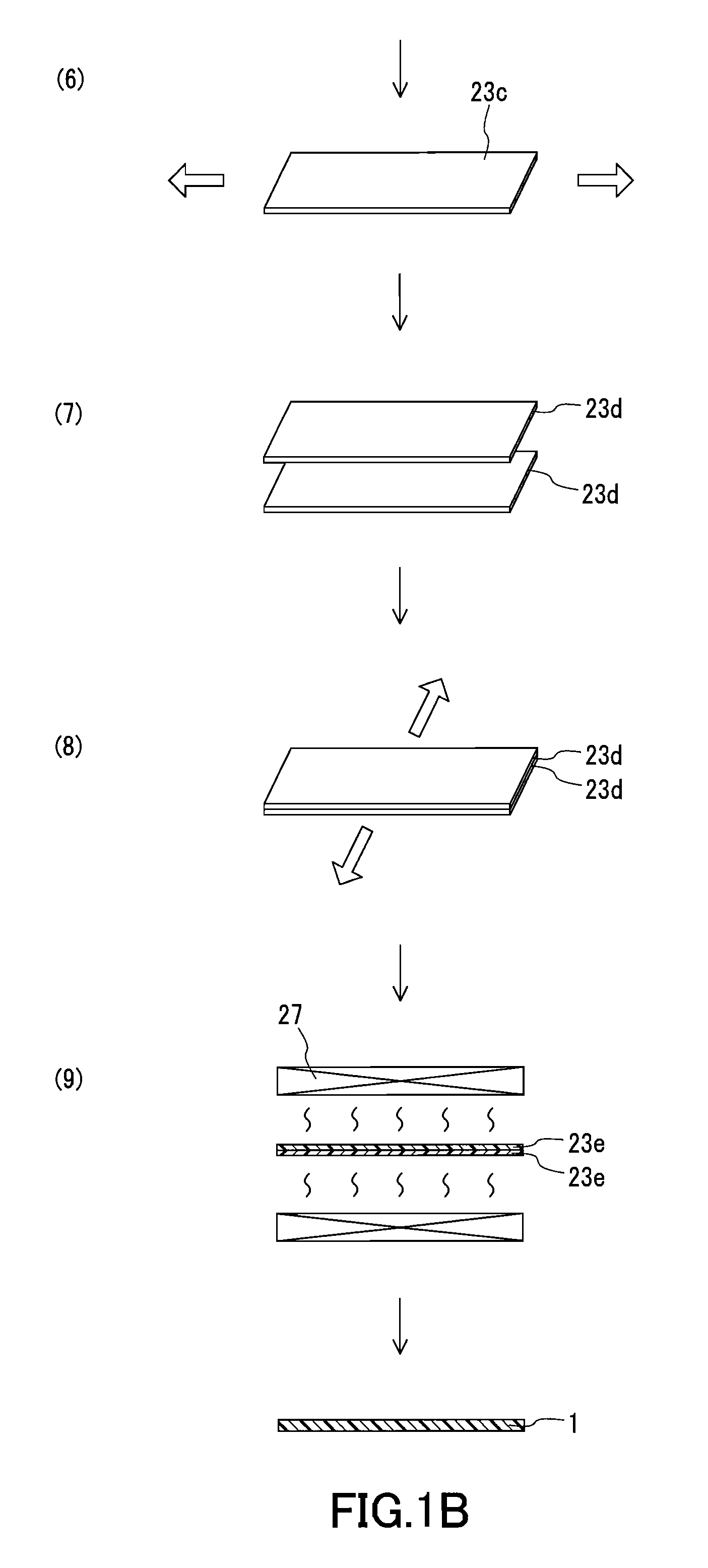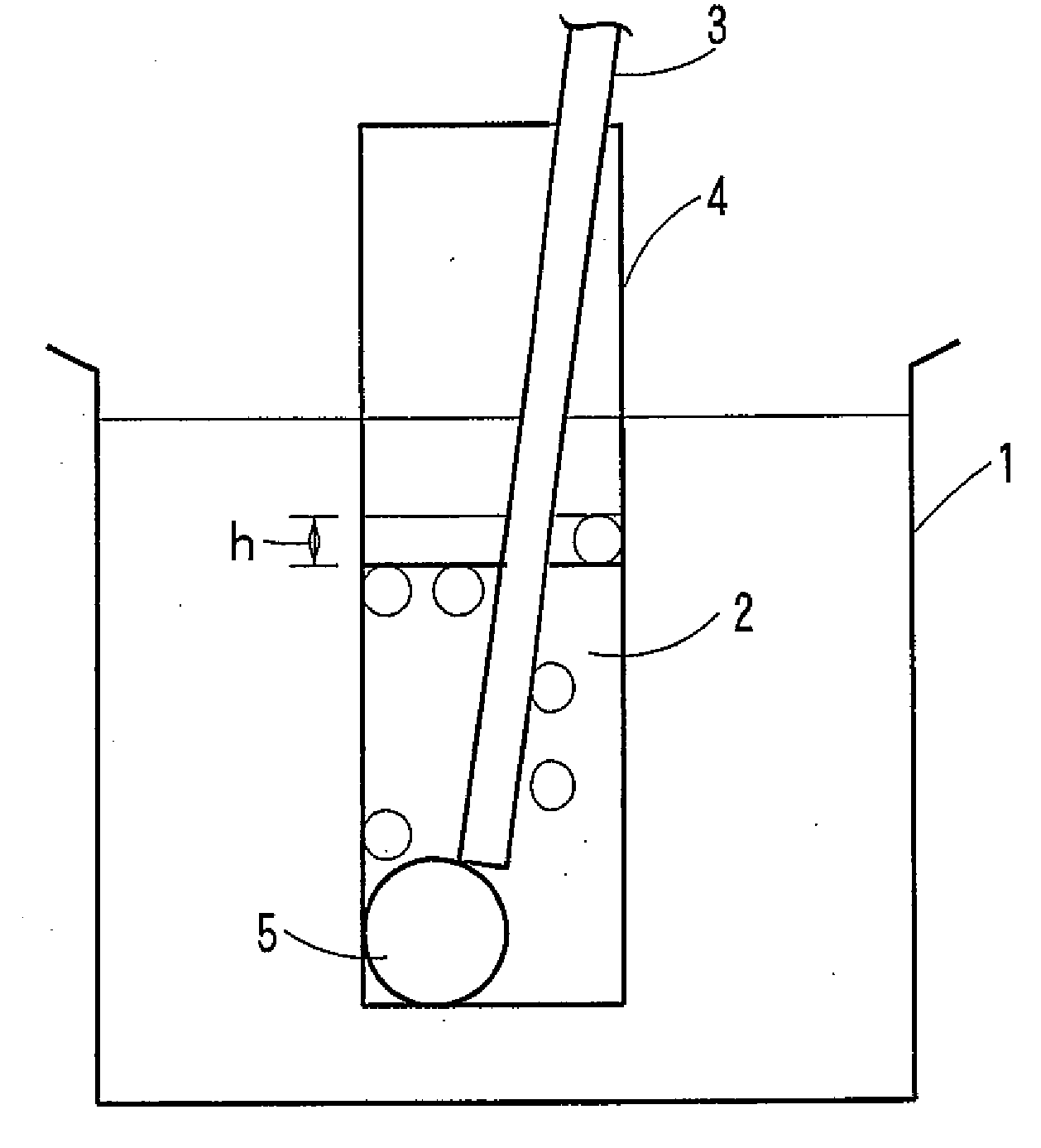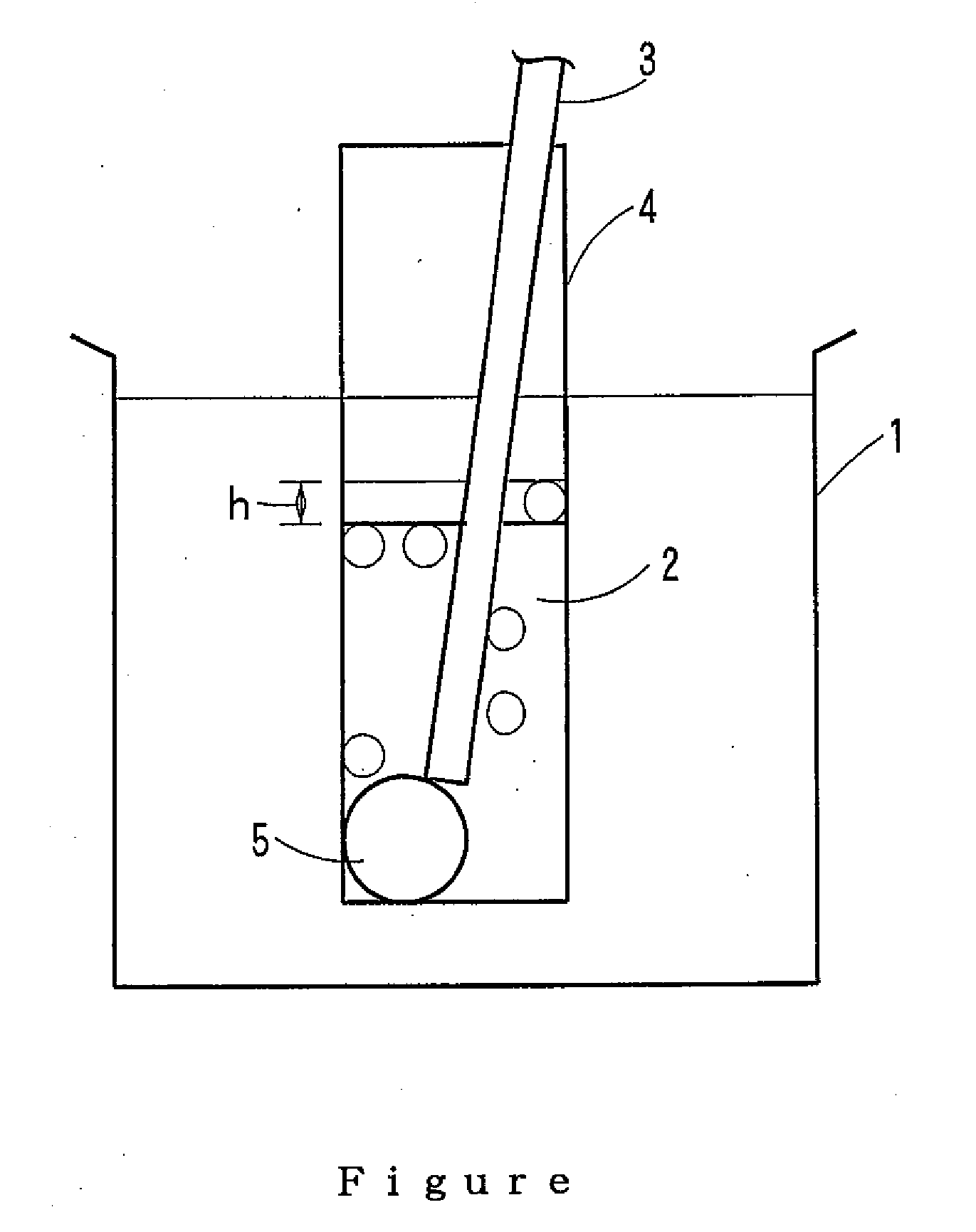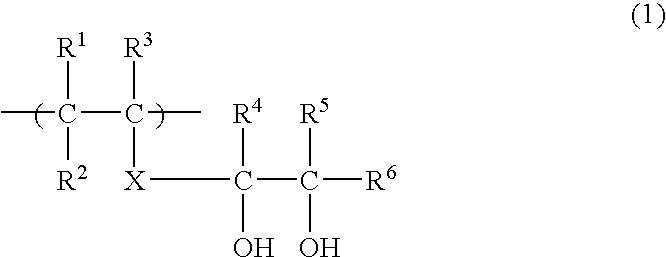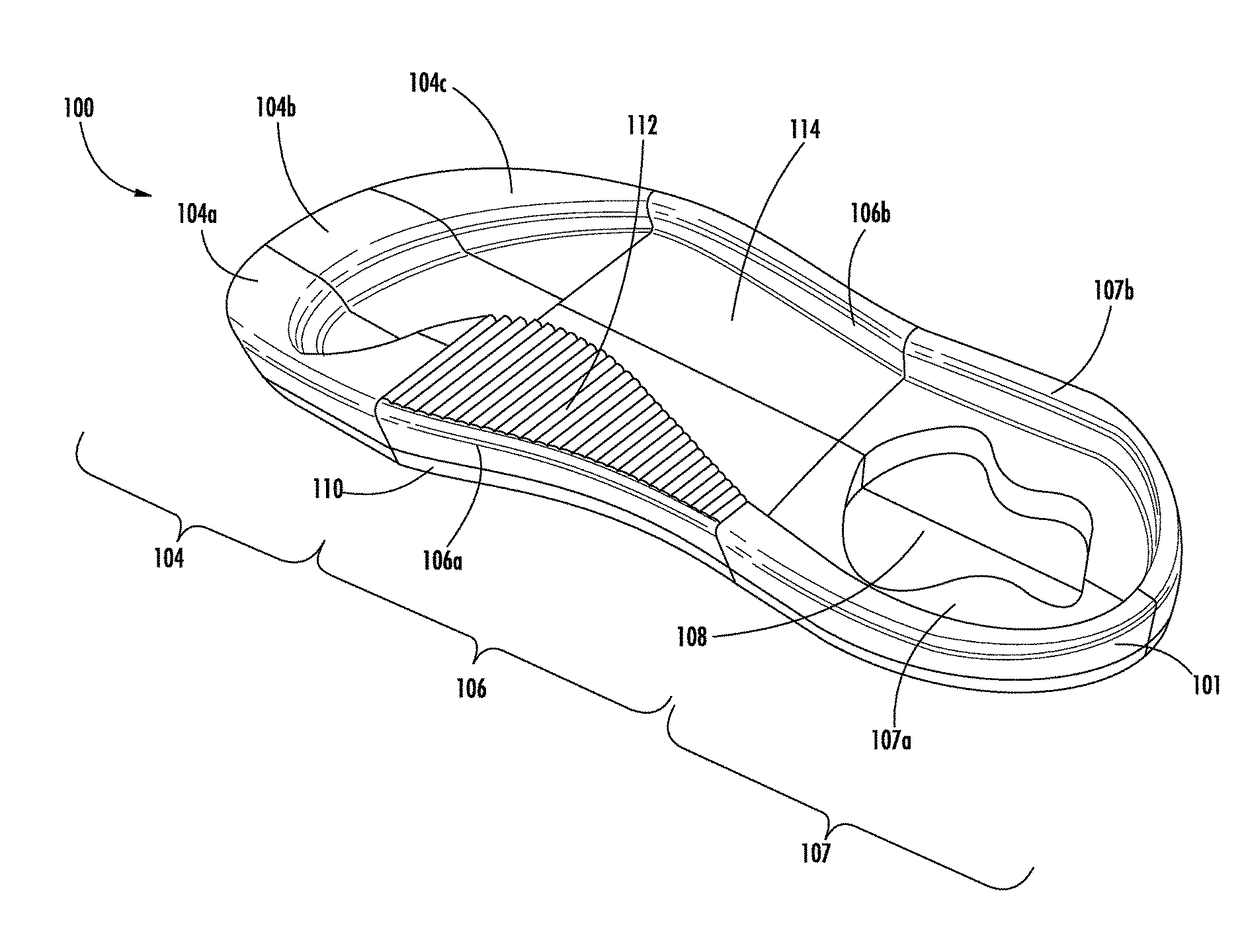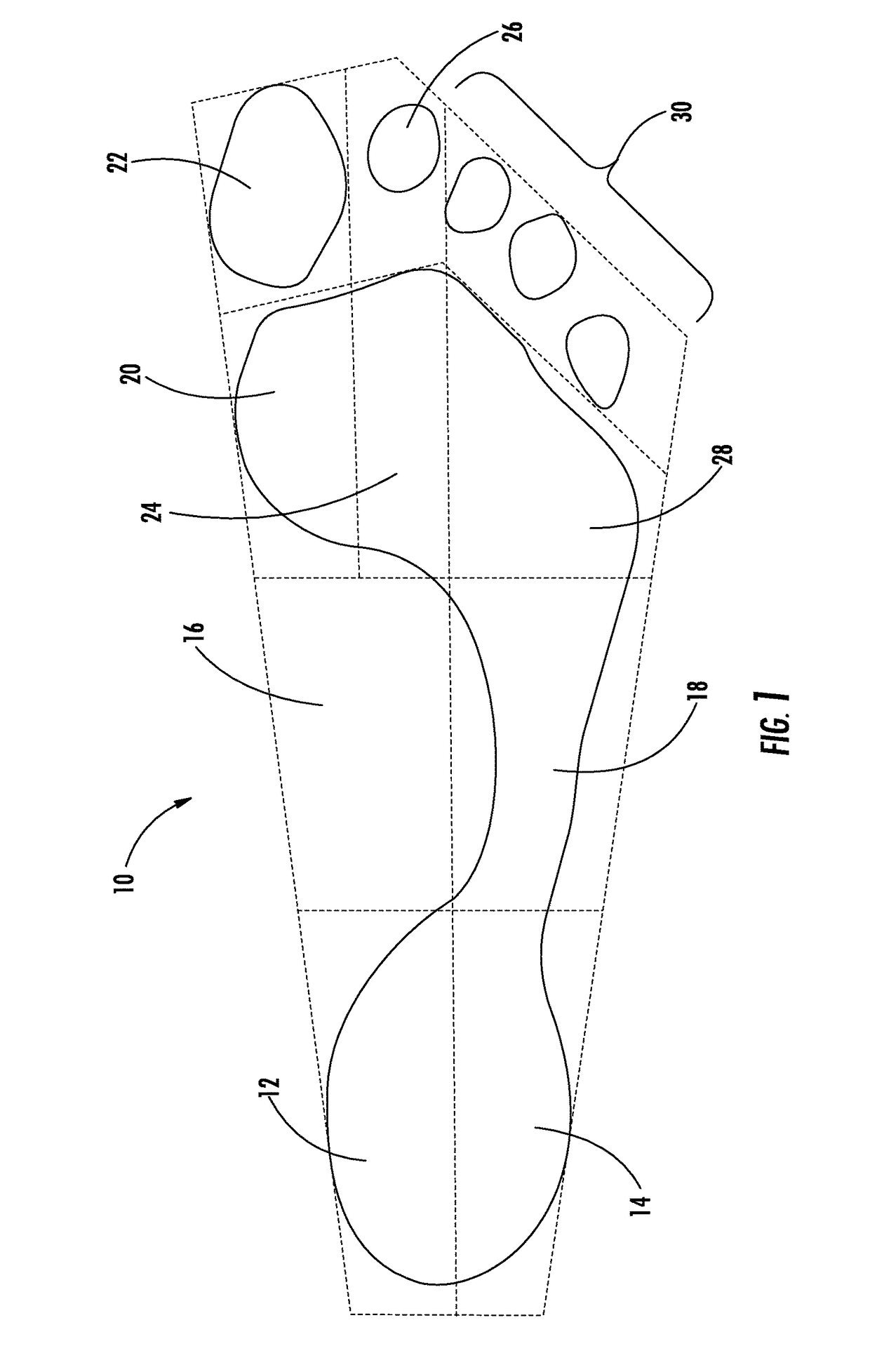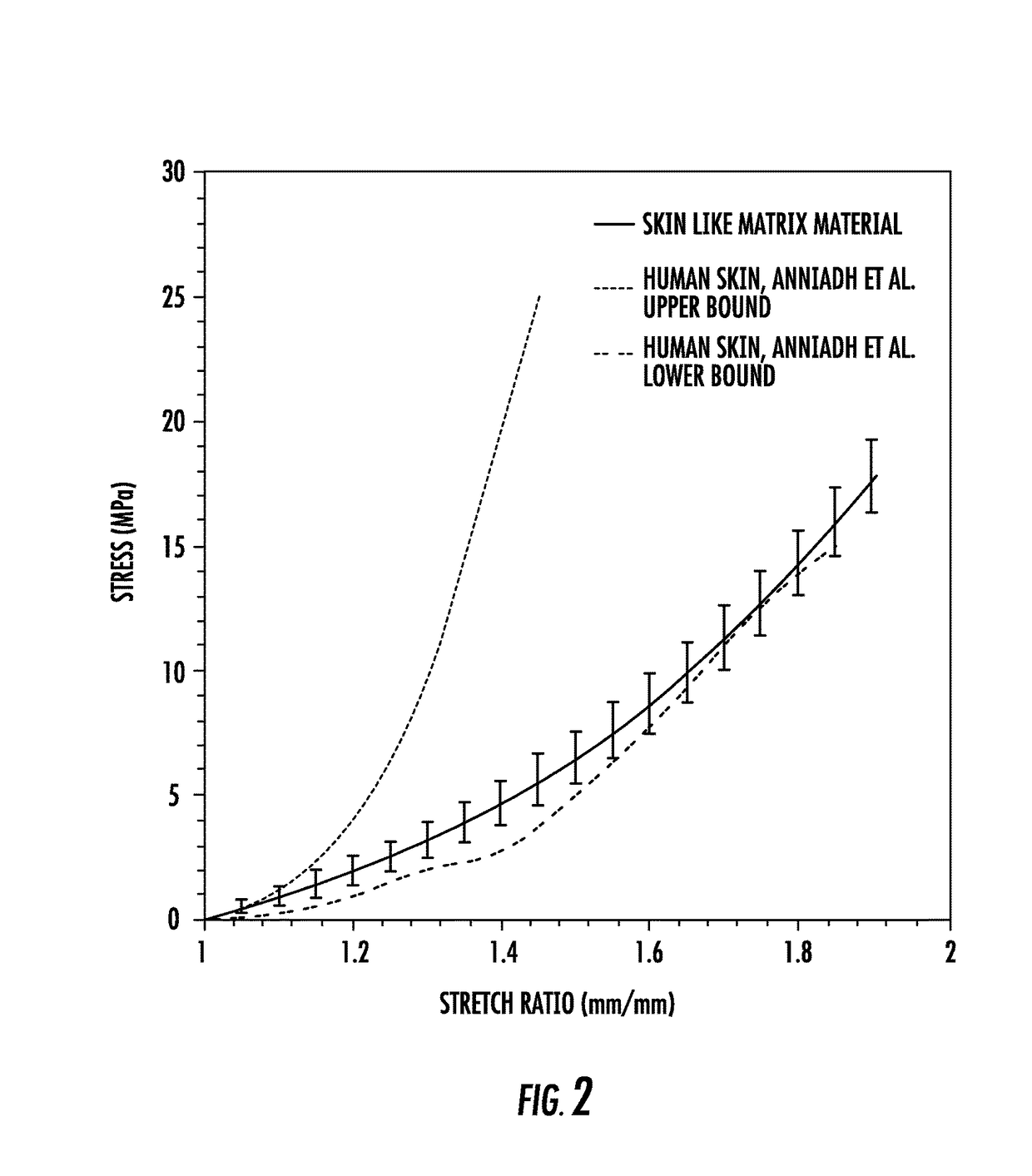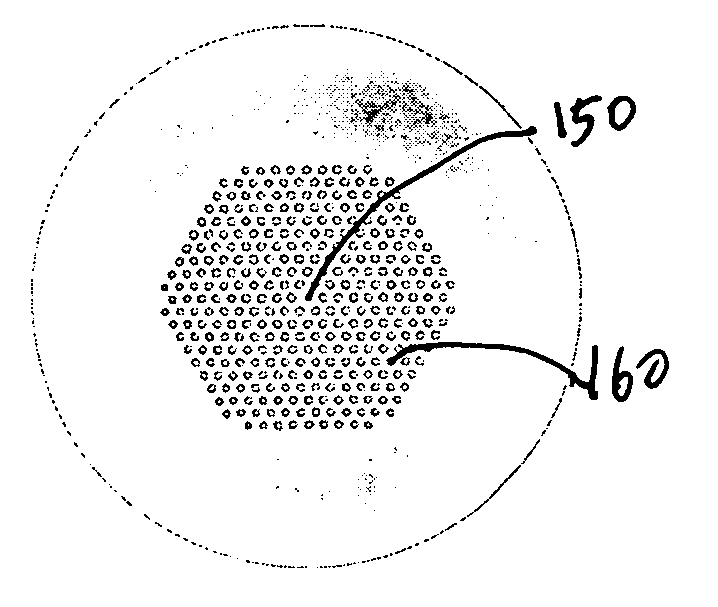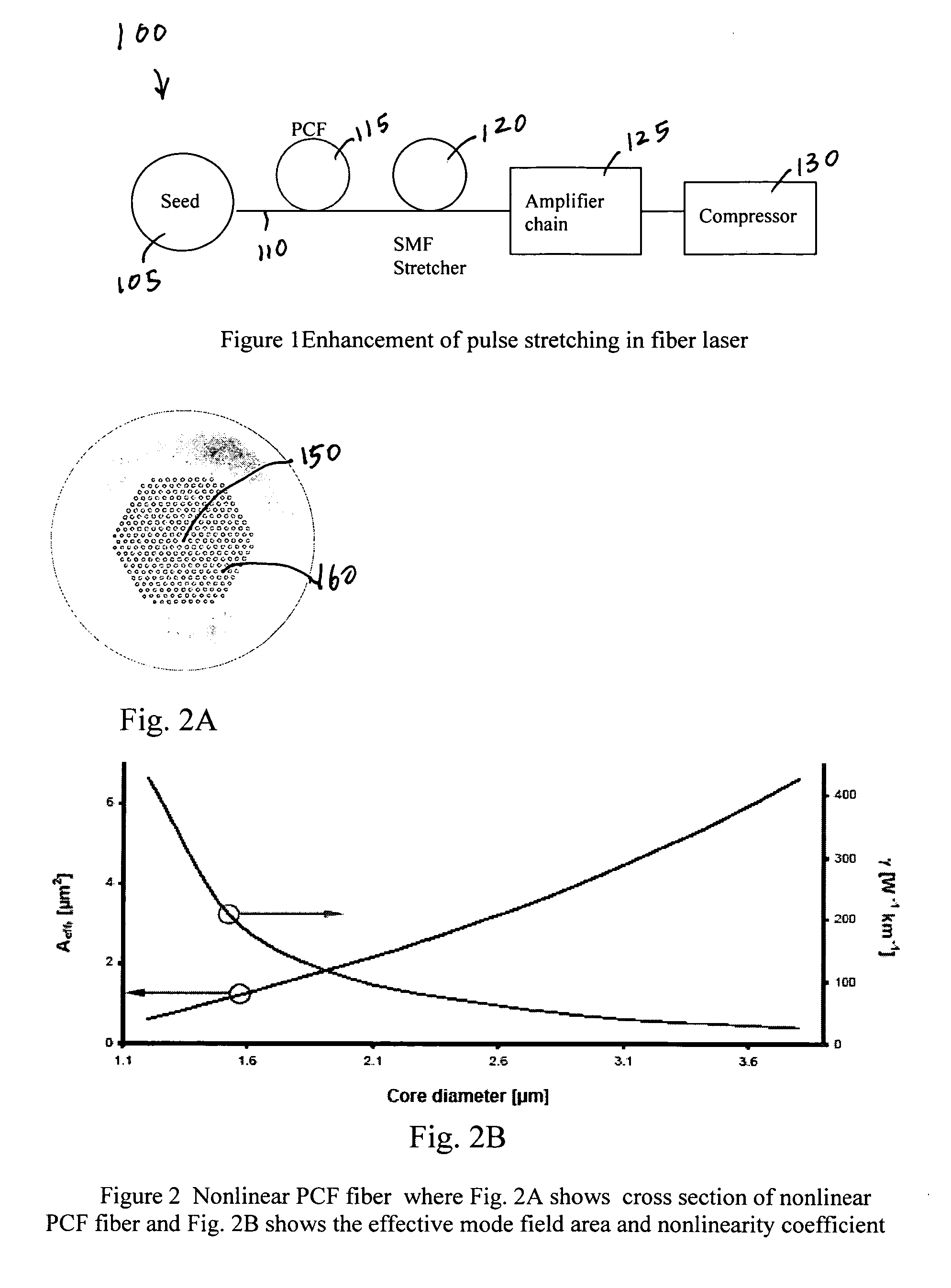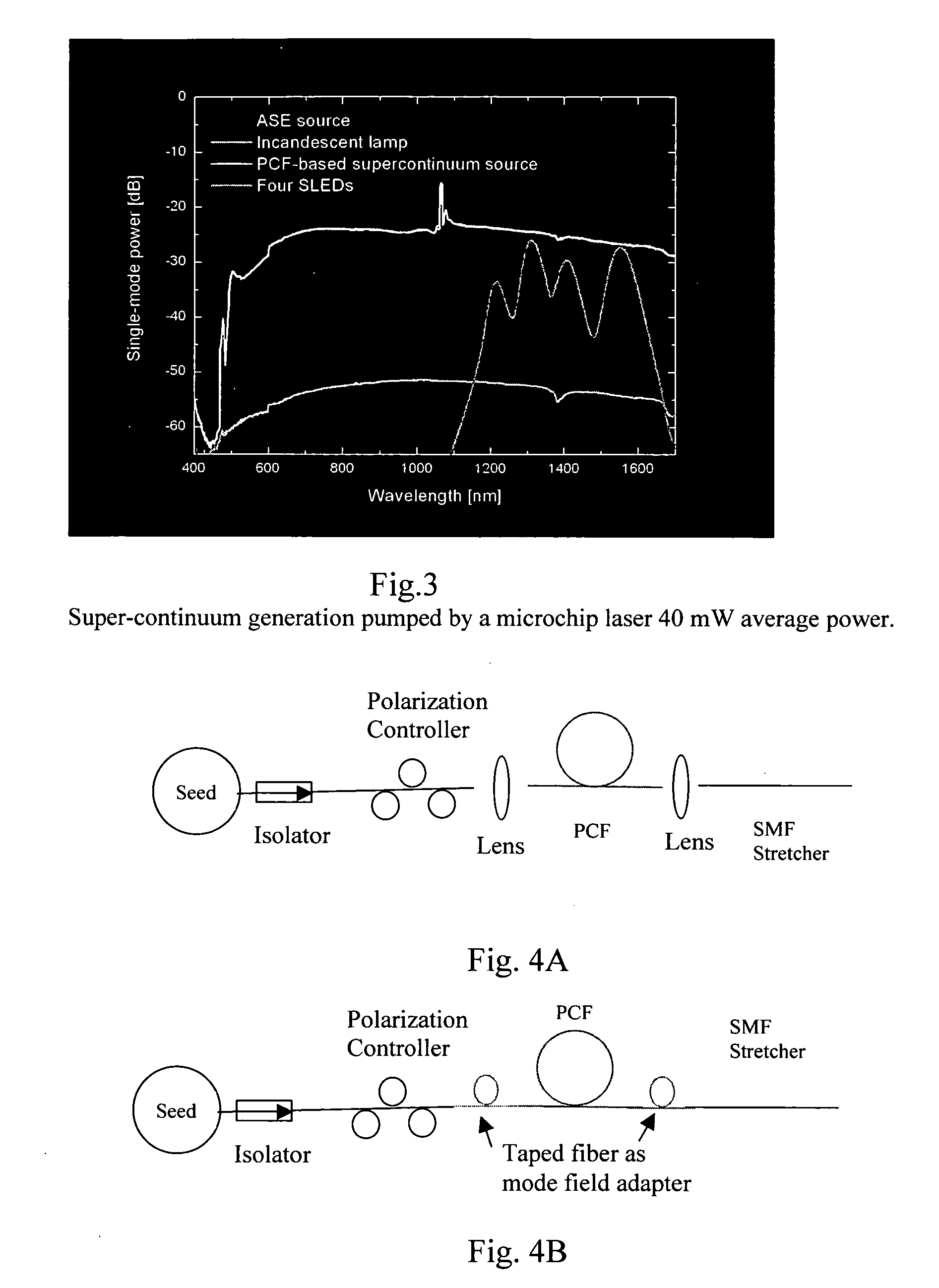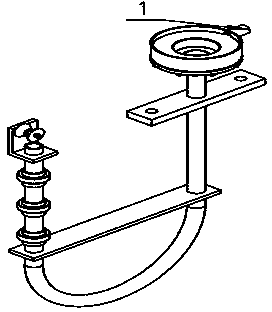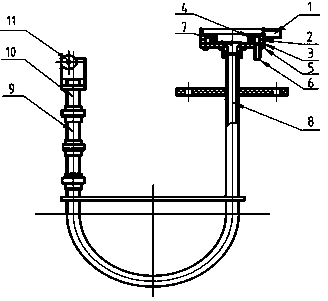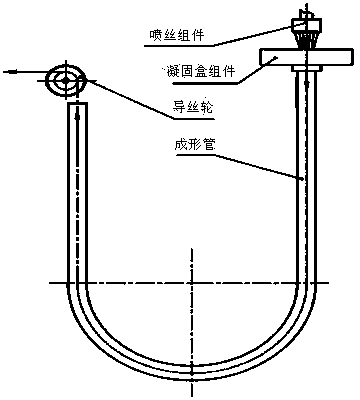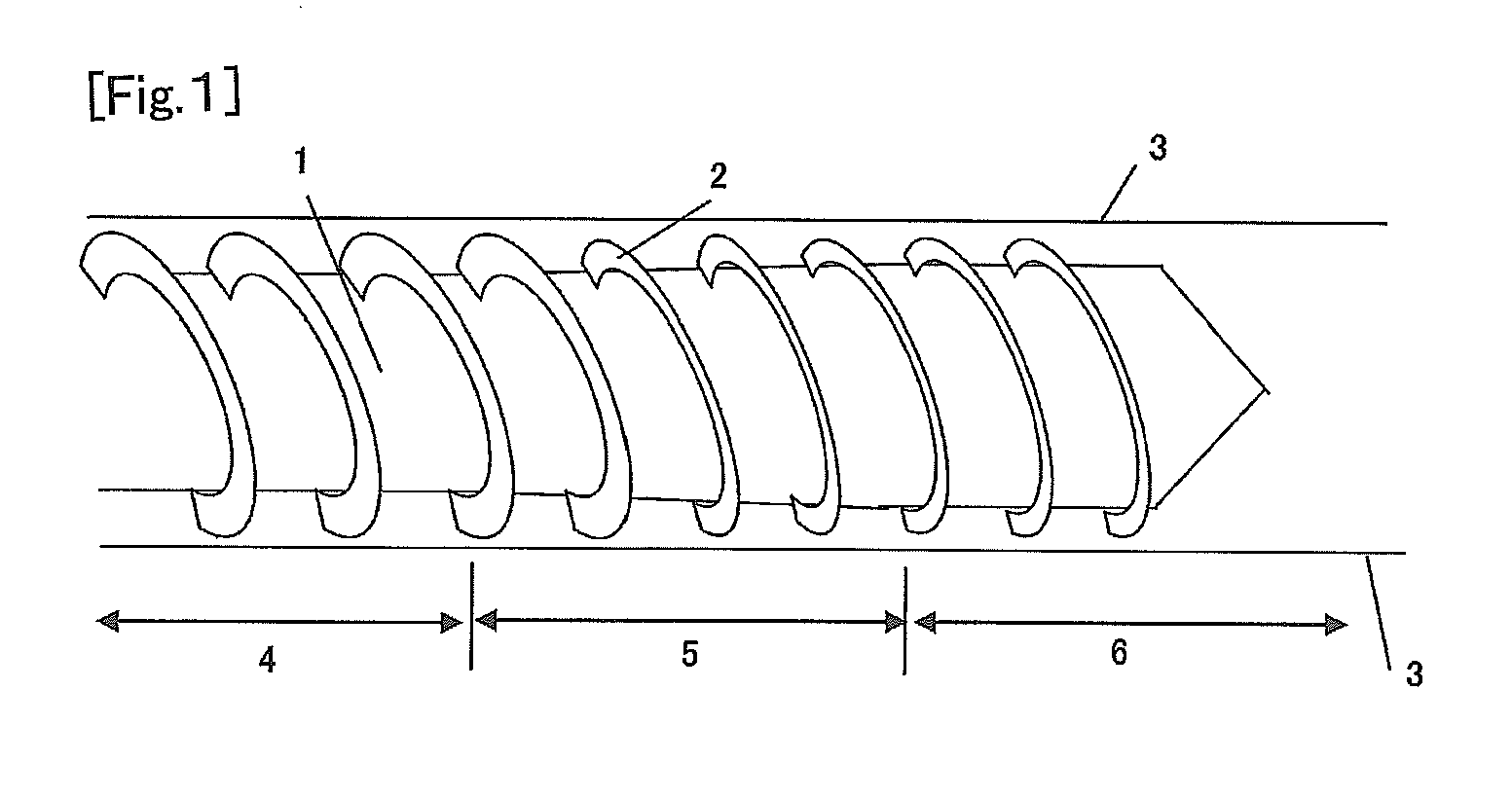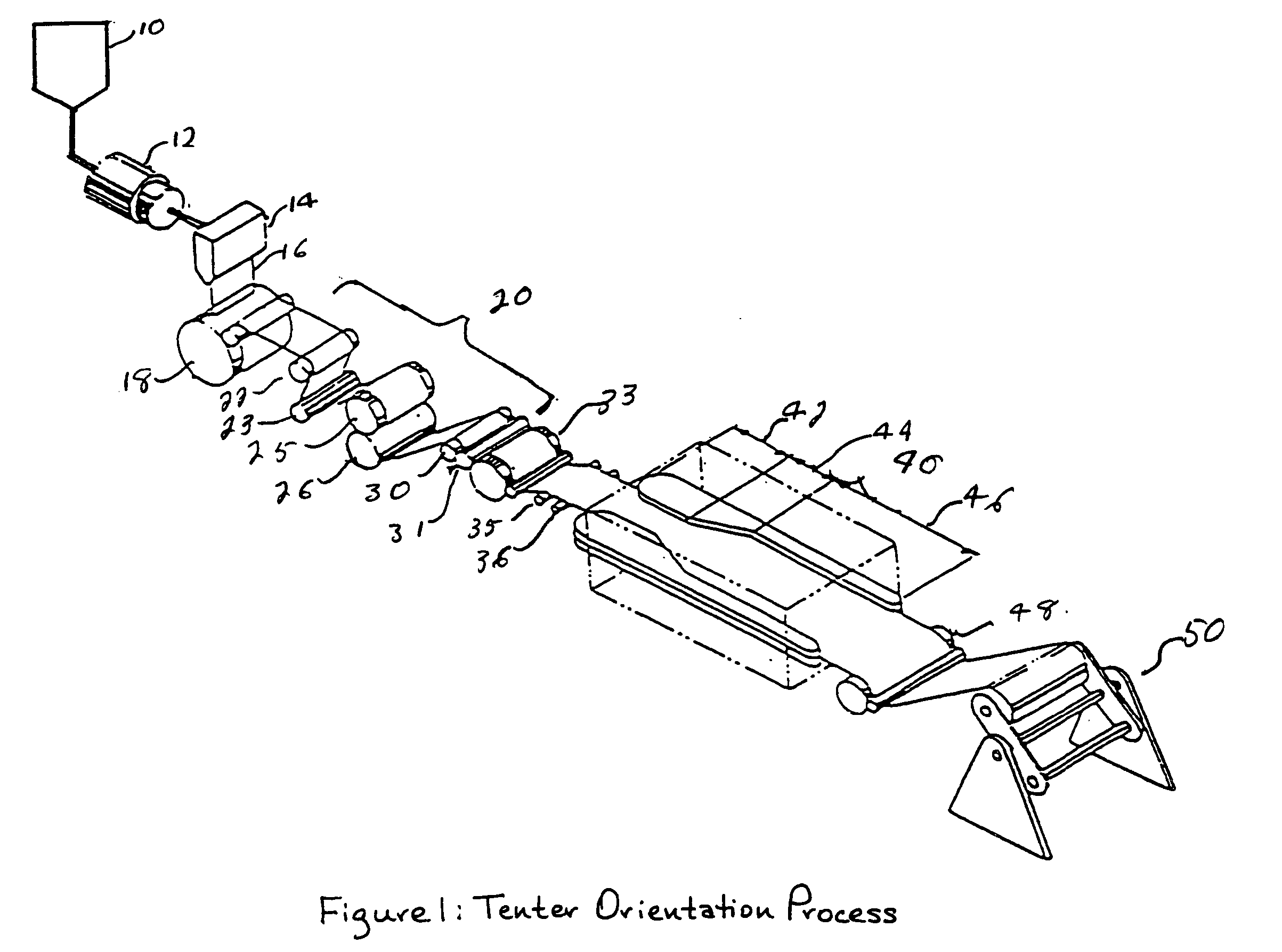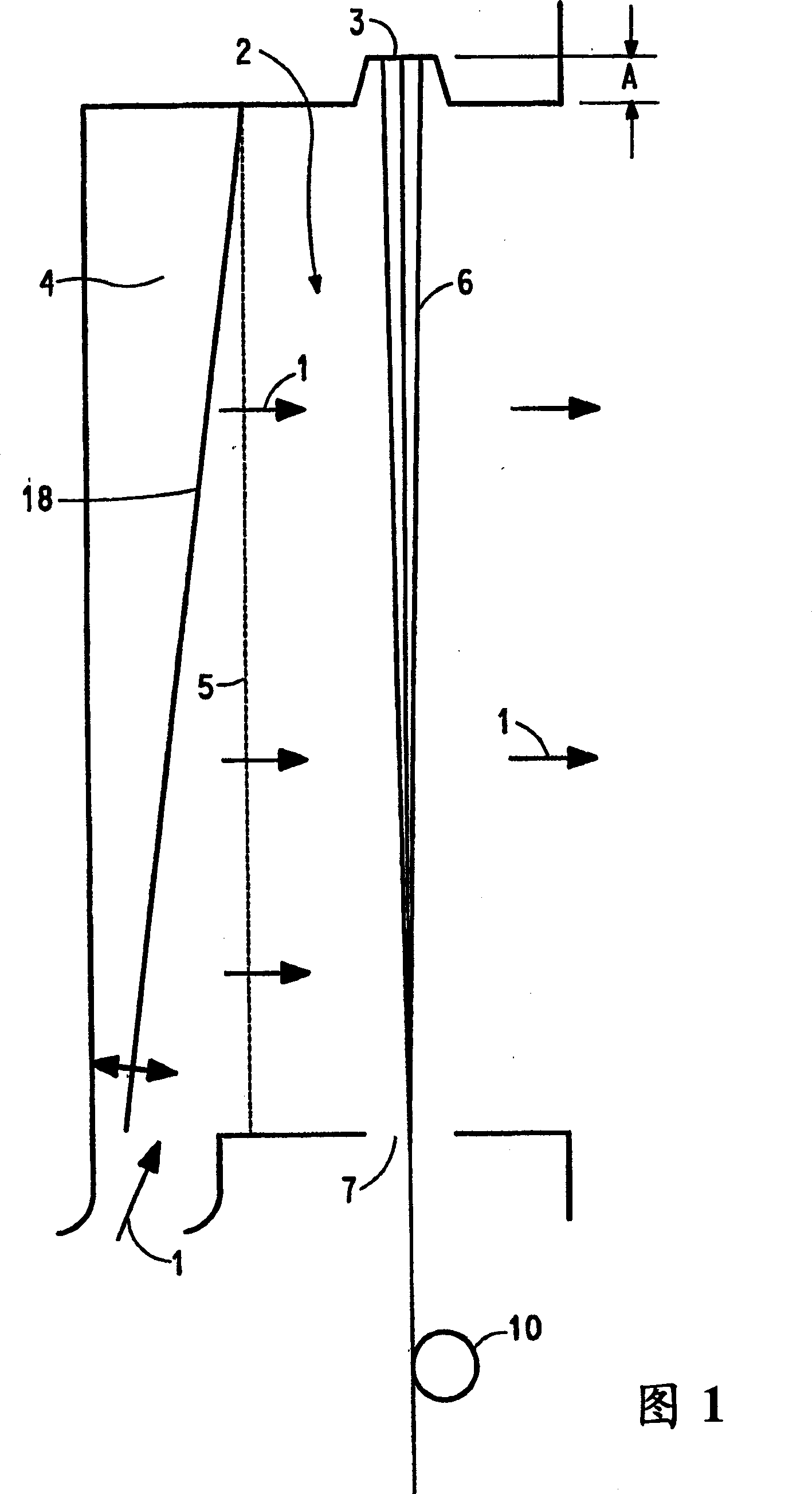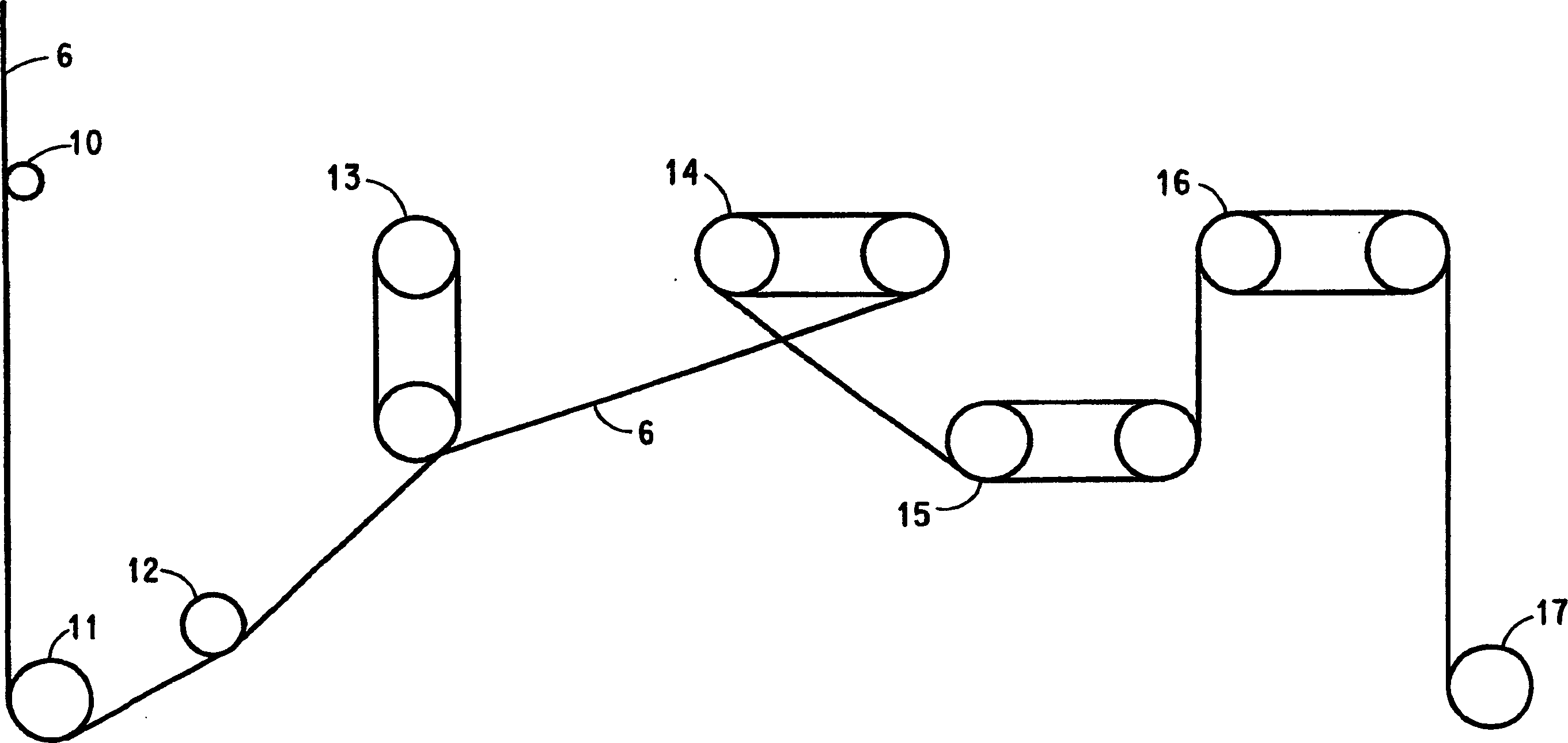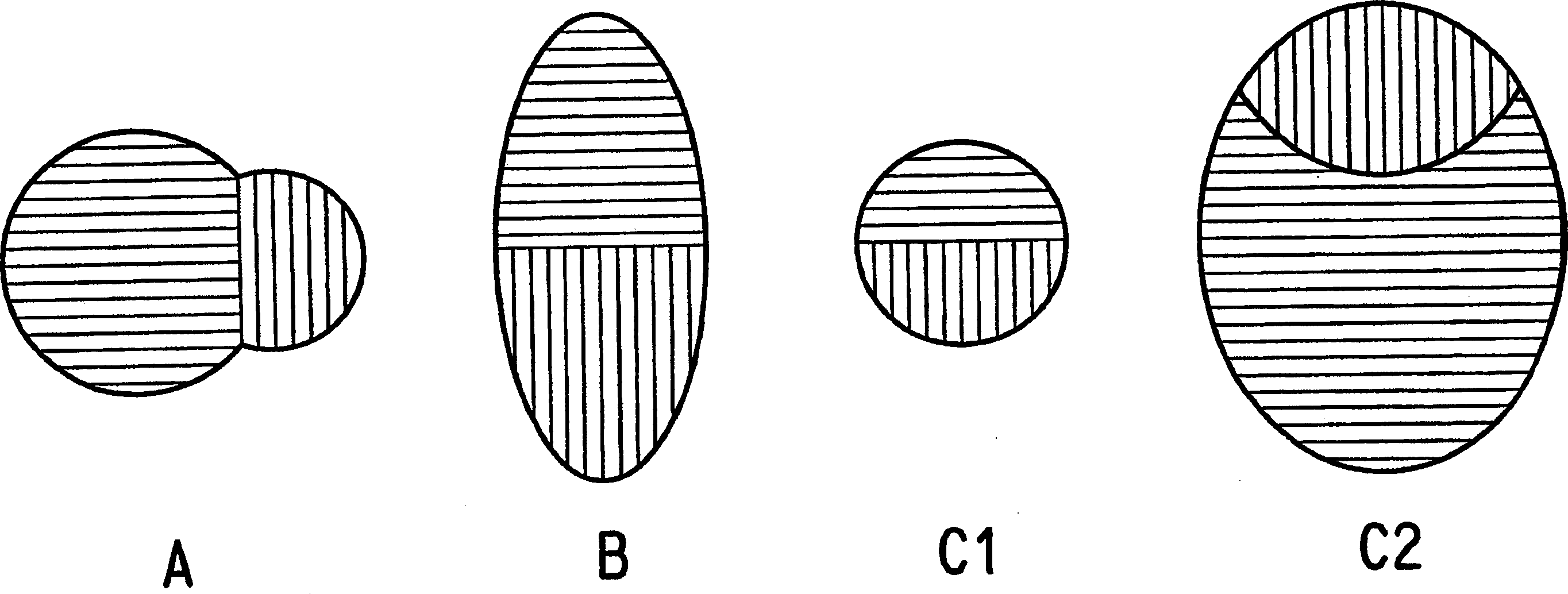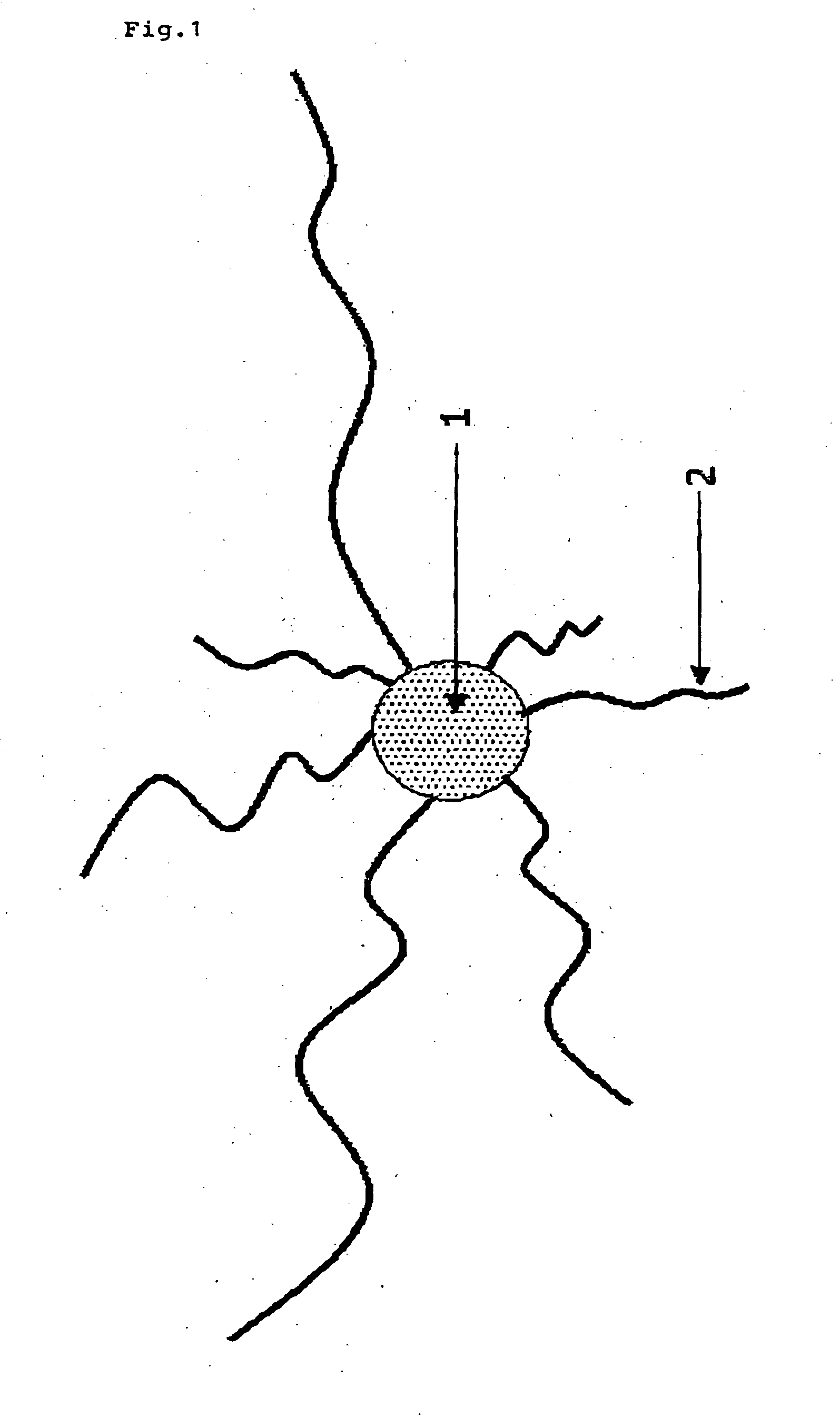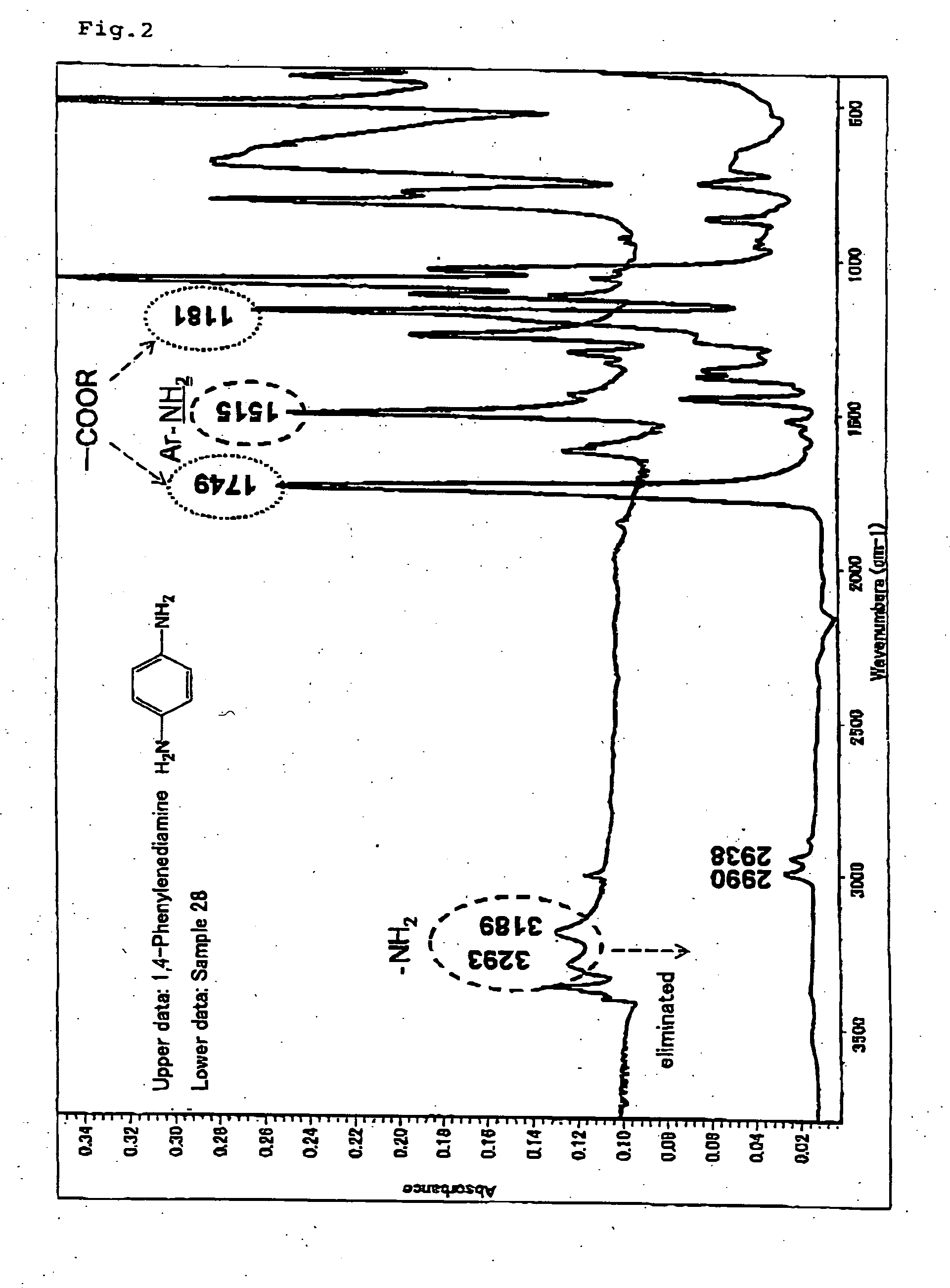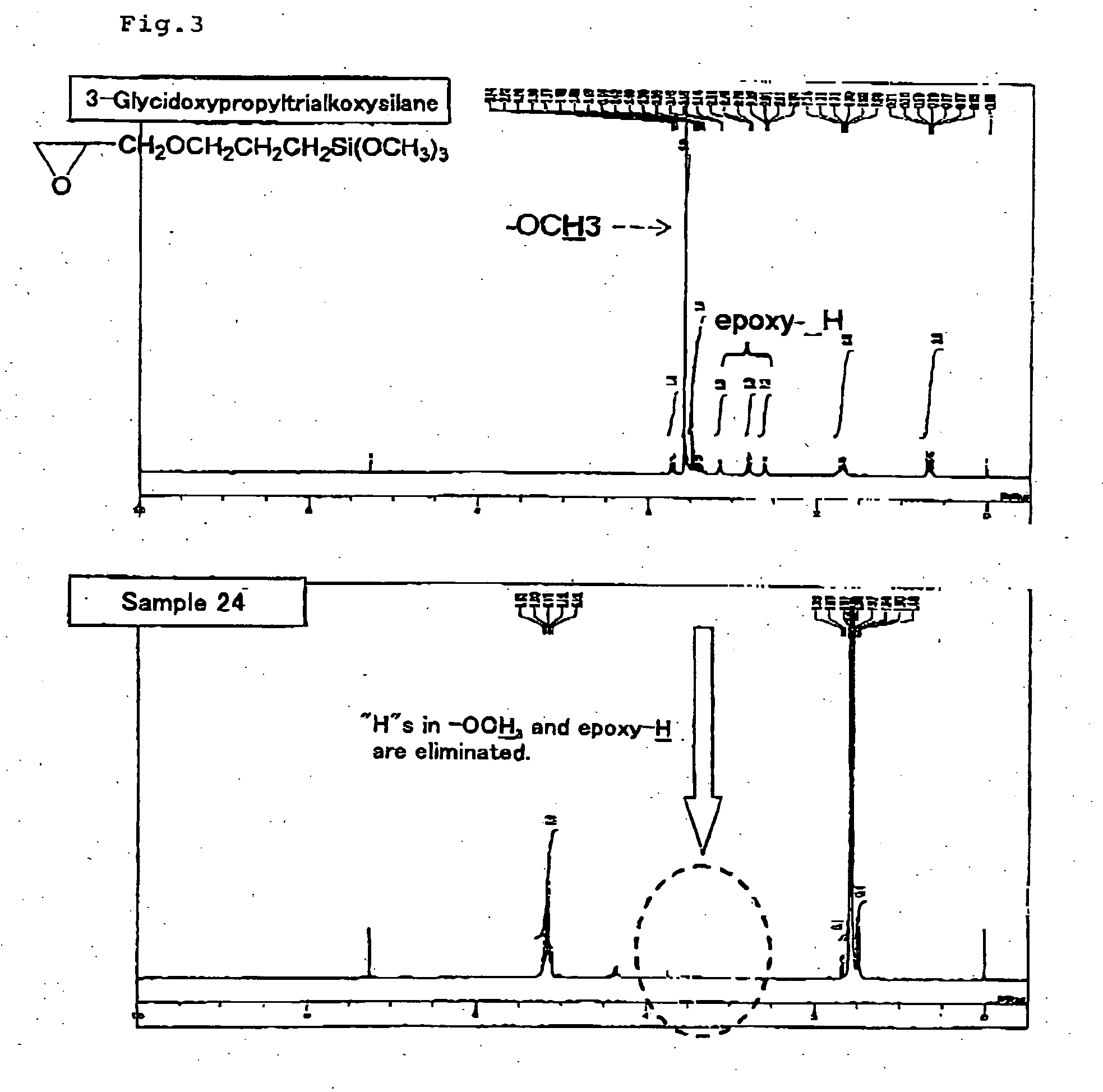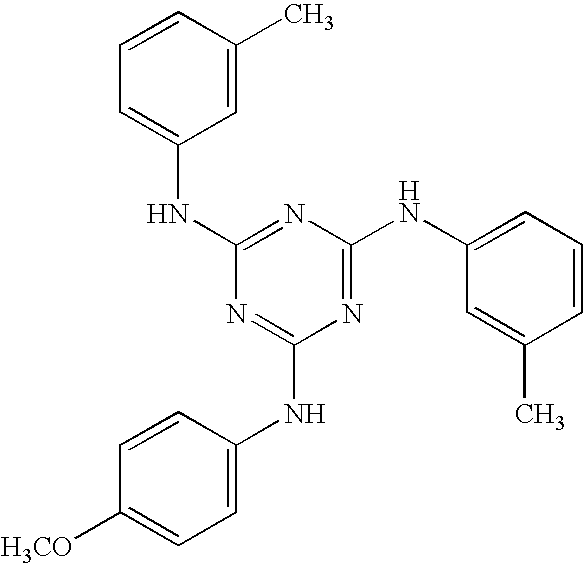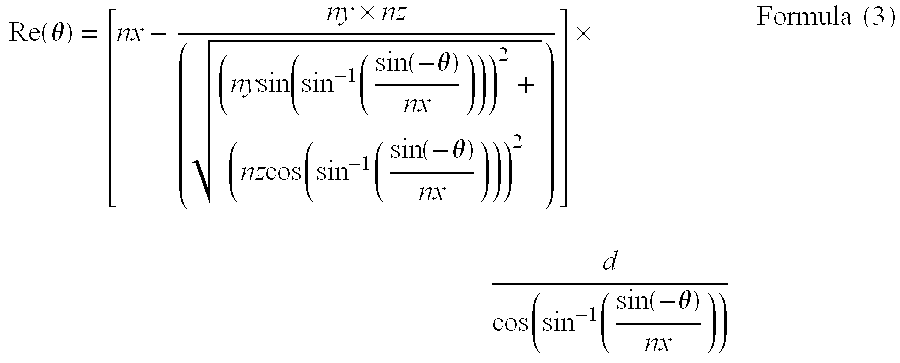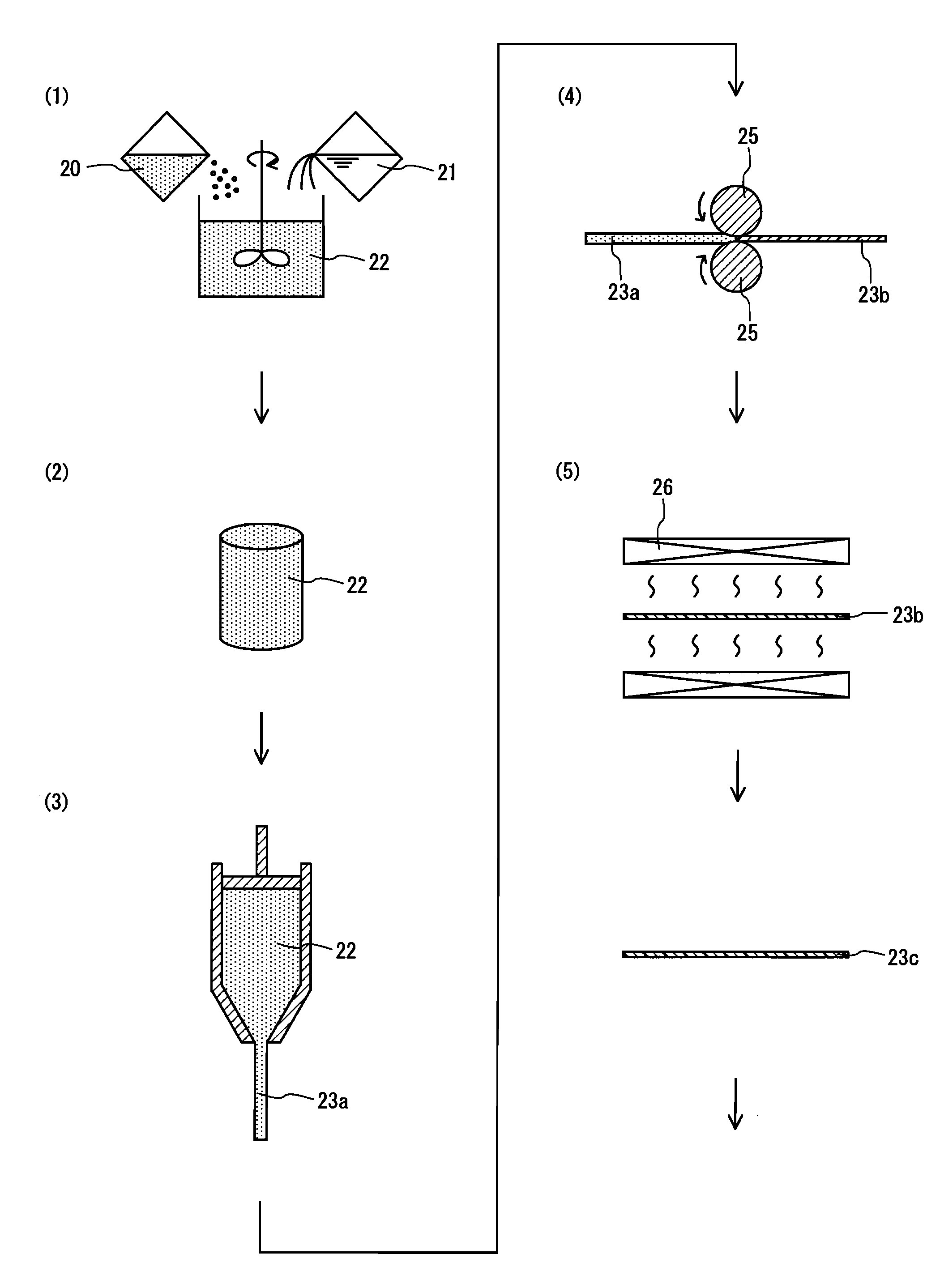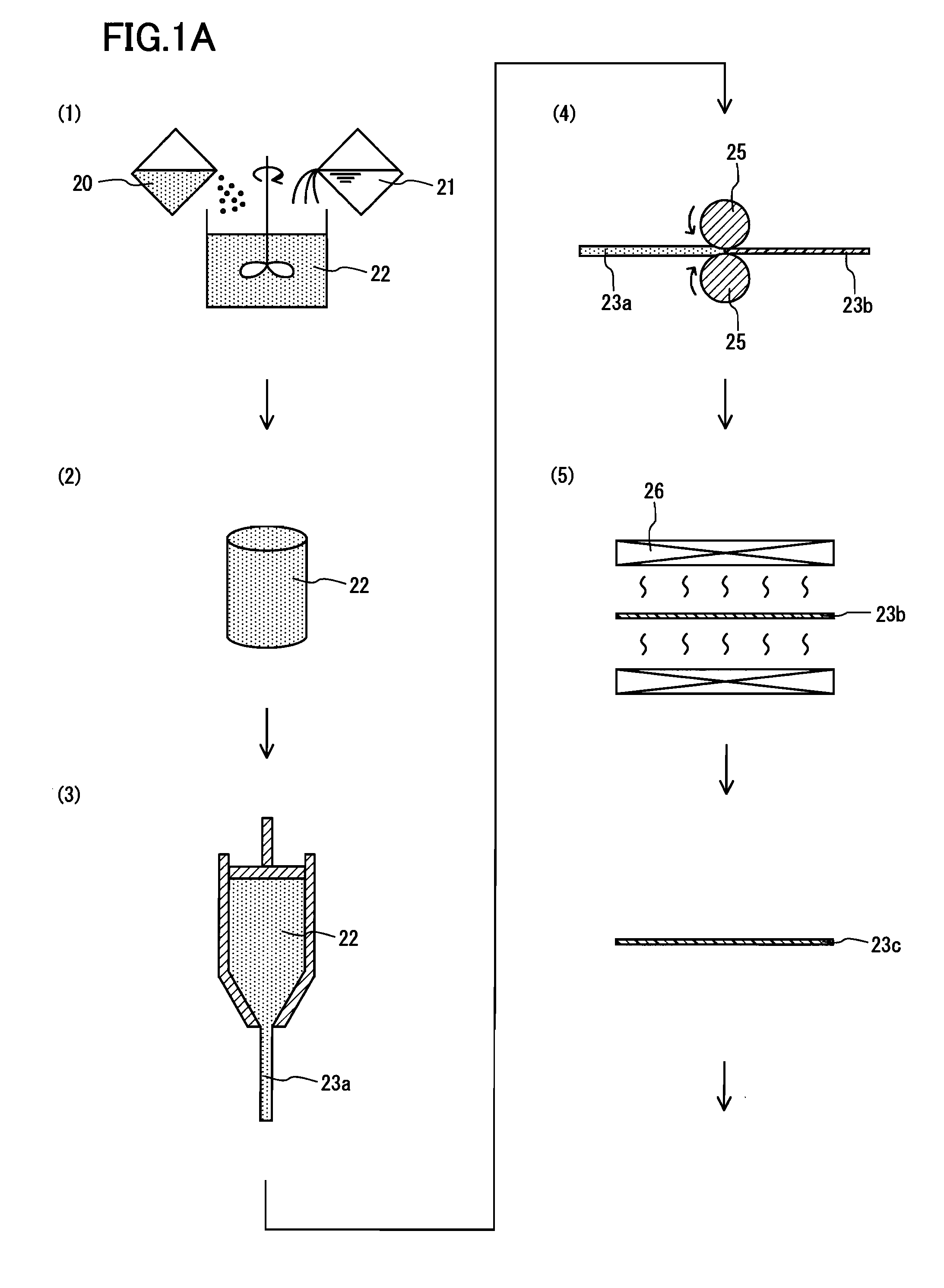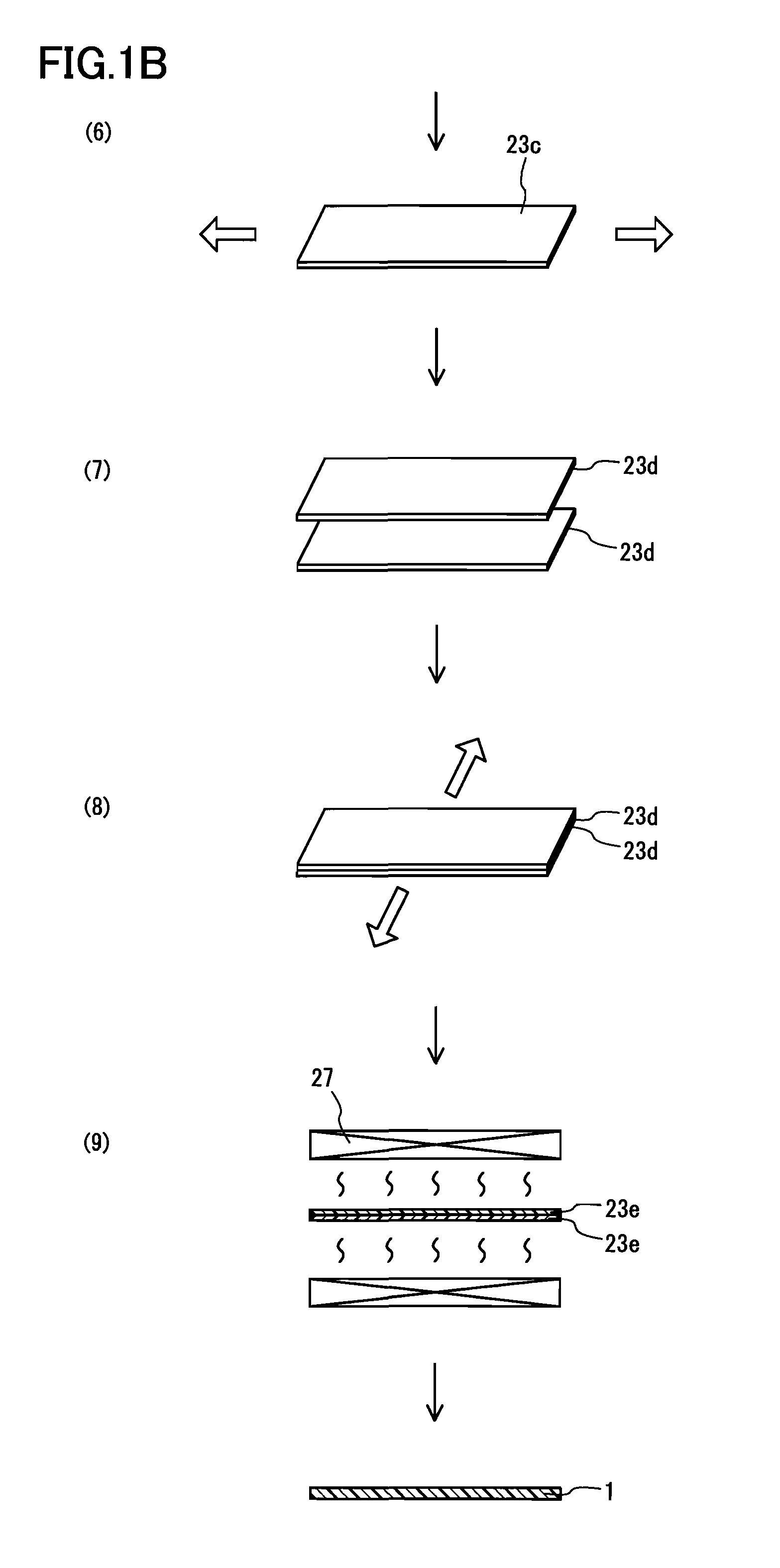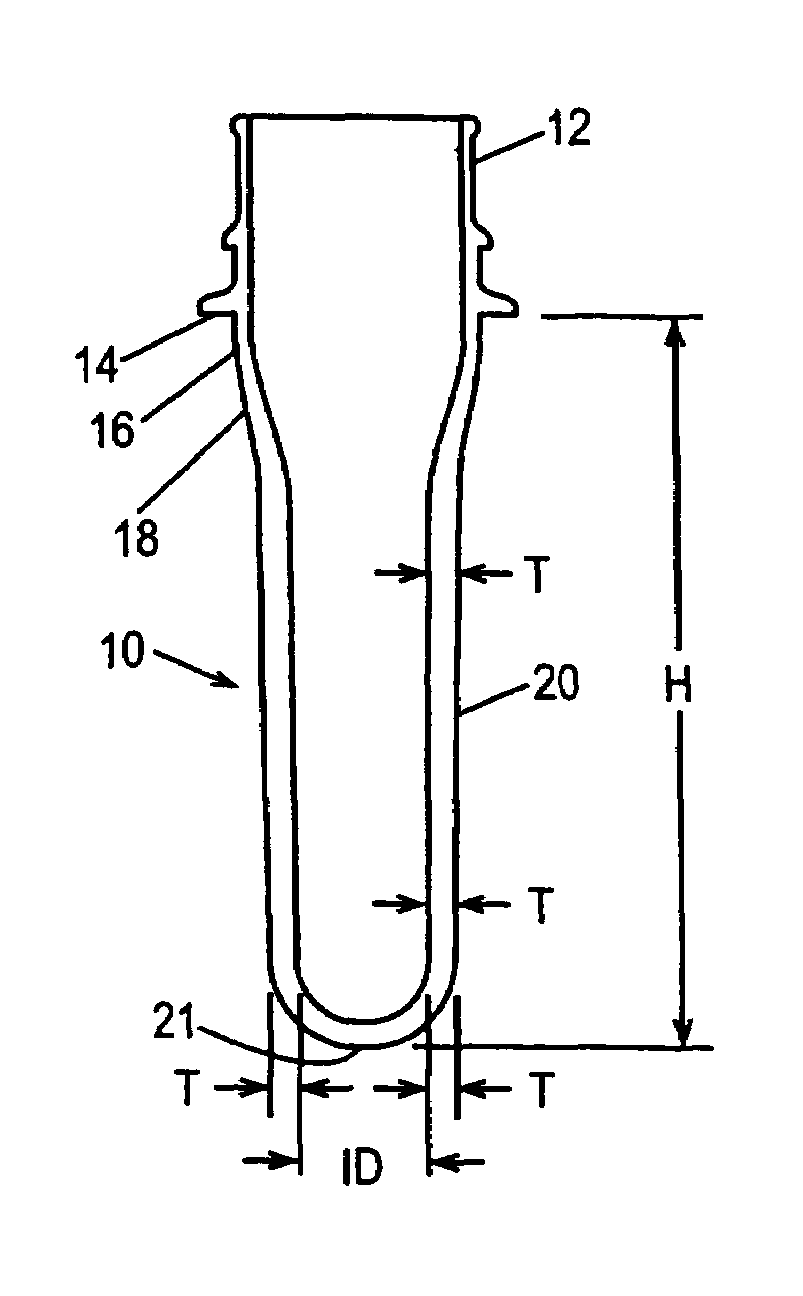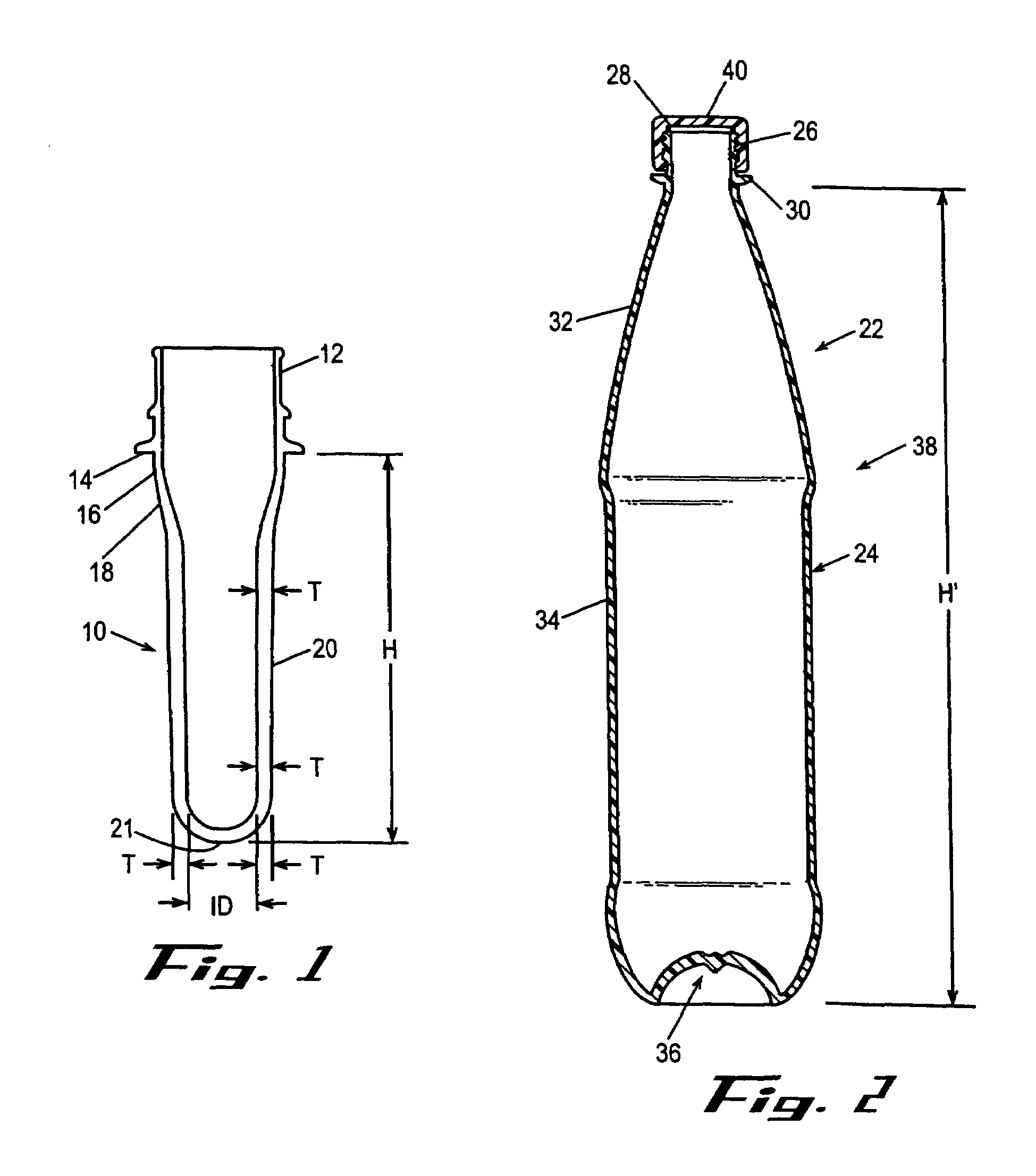Patents
Literature
Hiro is an intelligent assistant for R&D personnel, combined with Patent DNA, to facilitate innovative research.
102results about How to "Raise the draw ratio" patented technology
Efficacy Topic
Property
Owner
Technical Advancement
Application Domain
Technology Topic
Technology Field Word
Patent Country/Region
Patent Type
Patent Status
Application Year
Inventor
High melt strength polypropylene
The present invention concerns a high melt strength propylene polymer or copolymer suitable for manufacturing foams and thermoformed product exhibiting a melt strength of at least 3 g and comprising a high molar mass portion and a low or medium molar mass portion. The polymers are produced by subjecting propylene and optionally other olefins to polymerization in a plurality of polymerization reactors connected in series, employing different amounts of hydrogen as a molar mass modifier in at least two of the reactors, and carrying out the polymerization reaction in the presence of a catalyst system capable of catalyzing the formation of a high molar mass polymerization product having a MFR2 of less than 0.1 g / l0 min and a low or medium molar mass polymerization product having a MFR2 of more than 0.5 g / 10 min.
Owner:BOREALIS TECH OY
Thermoplastic monofilament fibers exhibiting low-shrink, high tenacity, and extremely high modulus levels
InactiveUS6759124B2High tensile strengthLow shrinkageSynthetic resin layered productsFilament/thread formingThermoplasticYarn
Unique thermoplastic monofilament fibers and yarns that exhibit heretofore unattained physical properties are provided. Such fibers are basically manufactured through the extrusion of thermoplastic resins that include a certain class of nucleating agent therein, and are able to be drawn at high ratios with such nucleating agents present that the tenacity and modulus strength are much higher than any other previously produced thermoplastic fibers, particularly those that also simultaneously exhibit extremely low shrinkage rates. Thus, such fibers require the presence of certain compounds that quickly and effectively provide rigidity to the target thermoplastic (for example, polypropylene), particularly after heat-setting. Generally, these compounds include any structure that nucleates polymer crystals within the target thermoplastic after exposure to sufficient heat to melt the initial pelletized polymer and allowing such an oriented polymer to cool. The compounds must nucleate polymer crystals at a higher temperature than the target thermoplastic without the nucleating agent during cooling. In such a manner, the "rigidifying" nucleator compounds provide nucleation sites for thermoplastic crystal growth. The preferred "rigidifying" compounds include dibenzylidene sorbitol based compounds, as well as less preferred compounds, such as [2.2.1]heptane-bicyclodicarboxylic acid, otherwise known as HPN-68, sodium benzoate, certain sodium and lithium phosphate salts [such as sodium 2,2'-methylene-bis-(4,6-di-tert-butylphenyl)phosphate, otherwise known as NA-11]. Specific methods of manufacture of such inventive thermoplastic fibers, as well as fabric articles made therefrom, are also encompassed within this invention.
Owner:MILLIKEN & CO
Suspension polymerization process for manufacturing ultra high molecular weight polyethylene, a multimodal ultra high molecular weight polyethylene homopolymeric or copolymeric composition, a ultra high molecular weight polyethylene, and their uses
InactiveUS20090163679A1Easy to processHigh molecular weightMonocomponent polyolefin artificial filamentFluidized bed dryingPolymer science
The present invention relates to a suspension polymerization process for the production of ultra high molecular weight polyethylene, wherein the operation is carried out in at least two reactors of the CSTR type (continuous stirring tank reactor), in a serial configuration, wherein the first reactor is fed with solvent, monomer and, optionally, comonomer; Ziegler-Natta type catalyst, said catalyst composition having a chloride concentration of at least 55%, based on its composition, and preferably more than 76%, chlorinated cocatalyst and chain growth regulator, said continuous stirring tank reactor being kept under a pressure between 0.1 to 2.0 MPa and temperature from 40° C. to 100° C., which contents of the first reactor are transferred to the subsequent reactor, by means of a pressure differential or through pumping, wherein said subsequent reactors are kept under a pressure between 0.1 to 2.0 MPa and temperature from 40° C. to 100° C., and fed with solvent, monomer, and, optionally, comonomer, catalyst, cocatalyst and chain growth regulator, the pressure and temperature in each of the reactors being different from one another up to the “nth” reactor, the number of reactors “n” varying from 2 to 4; the suspension thus obtained in reactor “n” being centrifugated for the removal of solvent and dried in a fluidized bed drier; thereby resulting in an ultra high molecular weight polyethylene homopolymeric or copolymeric composition with polydispersity greater than or equal to 6.
Owner:BRASKEM SA
Water-proof sound-transmitting membrane, method for producing the water-proof sound-transmitting membrane, and electrical appliance including the water-proof sound-transmitting membrane
ActiveUS20110143114A1Lose waterproofnessWater leakage and rupture of the membrane startBaby linensUndergarmentsVolumetric Mass DensityMaterials science
The present invention provides a water-proof sound-transmitting membrane including a polytetrafluoroethylene (PTFE) porous membrane, in which the waterproofness is enhanced further with little lowering of the sound transmittance. The water-proof sound-transmitting membrane includes the PTFE porous membrane. The PTFE porous membrane includes a first porous layer, and a second porous layer stacked on and integrated with the first porous layer by a binding force acting between PTFE matrices. The first porous layer and the second porous layer each are composed of PTFE with a number-average molecular weight of 5.0×107 or more determined by a standard specific gravity method. At least one layer selected from the first porous layer and the second porous layer has an average pore diameter of 1 μm or less. The water-proof sound-transmitting membrane has a surface density of 1 g / m2 to 10 g / m2.
Owner:NITTO DENKO CORP
Process for making a yarn having a spin finish
InactiveUS6908579B2Enhances yarn processabilityImprove mechanical qualityFibre typesPneumatic tyre reinforcementsYarnEngineering
A spin finish which enhances yarn processability and contributes to improved yarn performance. The spin finish is advantageous when compared with conventional spin finishes applied to industrial yarn because the present spin finish enhances yarn processability as evidenced by low forming, improved mechanical quality at lower amounts of spin finish per yarn, improved mechanical quality at higher draw ratios, and minimal depositing. It also improves yarn performance as evidenced by improved strength and wicking.
Owner:FIBER INNOVATORS INT LLC
Absorbent sheet incorporating regenerated cellulose microfiber
ActiveUS8187421B2Good flexibilityHigh strengthCellulosic pulp after-treatmentNon-fibrous pulp additionPolymer sciencePapermaking
An absorbent paper sheet includes cellulosic papermaking fiber and up to about 75 percent by weight fibrillated regenerated cellulose microfiber which may be regenerated from a cellulosic dope utilizing a tertiary amine N-oxide solvent or selected ionic liquids. Fibrillation of the microfiber is controlled such that it has a reduced coarseness and a reduced freeness as compared with unfibrillated regenerated cellulose microfiber from which it is made and provides at least one of the following attributes to the absorbent sheet: (a) the absorbent sheet exhibits an elevated SAT value and an elevated wet tensile value as compared with a like sheet prepared without fibrillated regenerated cellulose microfiber; (b) the absorbent sheet exhibits an elevated wet / dry CD tensile ratio as compared with a like sheet prepared without fibrillated regenerated cellulose microfiber; (c) the absorbent sheet exhibits a lower GM Break Modulus than a like sheet having like tensile values prepared without fibrillated regenerated cellulose microfiber; or (d) the absorbent sheet exhibits an elevated bulk as compared with a like sheet having like tensile values prepared without fibrillated regenerated cellulose microfiber.
Owner:GPCP IP HLDG LLC
Water-proof sound-transmitting membrane, method for producing water-proof sound-transmitting membrane, and electrical appliance using the membrane
ActiveUS20100206660A1Ensure strengthGood transmittanceSynthetic resin layered productsLaminationPorous membraneBinding force
A water-proof sound-transmitting membrane 10 includes a polytetrafluoroethylene porous membrane 1 and has a surface density of 1 to 20 g / m2. The polytetrafluoroethylene porous membrane 1 includes a first porous layer 1a, and a second porous layer 1b stacked on and integrated with the first porous layer 1a by a binding force acting between polytetrafluoroethylene matrices.
Owner:NITTO DENKO CORP
Polarizing plate, optical element, and liquid crystal display
InactiveUS6897916B2Convenient lightingRaise the draw ratioPhotomechanical apparatusPolarising elementsVisibilityLiquid-crystal display
A polyvinyl alcohol-based polarizing film is provided, and the polarizing film has excellent surface smoothness while the light transmittance and the polarization degree are improved due to the high stretch ratio. The polarizing film is obtained from a polyvinyl alcohol film having a thickness ranging from 85 μm to 150 μm by dyeing the film with a dichroic substance and stretching it to 4-7 times its original length. The polarizing film has a light transmittance ranging from 35% to 50% and a polarization degree of at least 80%, and the surface roughness in a direction perpendicular to the stretching axis is at most 0.04 μm based on a centerline average roughness. A transparent protective layer or a transparent protective plate comprising the transparent protective layer is formed on at least one surface of the polarizing film in order to provide a polarizing plate. The transparent protective layer can be subject to a pre-treatment selected from a hard-coat treatment and an anti-glare treatment. Additional optical layers are laminated on the polarizing plate in order to provide an optical element. A polarizing plate or an optical element comprising the above-mentioned polarizing film has an excellent light transmittance and polarization degree, so that stripe-shaped streaks inhibiting visibility will not be observed substantially even in a reflection mode.
Owner:NITTO DENKO CORP
Thermoplastic skin sheet for interior parts of automobiles and method for producing such skin sheet
InactiveUS6379802B2Raise the draw ratioIncreased durabilitySynthetic resin layered productsCellulosic plastic layered productsElastomerPolyolefin
A thermoplastic skin sheet constituted by (a) a thermoplastic polyolefin or elastomer sheet; (b) a primer layer coated on the sheet, the primer being based on a modified polyolefin resin containing 2 mg-equivalent / g or less of a hydroxyl group or a carboxyl group; and (c) a topcoat layer coated on the primer layer. The topcoat layer may be mainly composed of (a) 100 parts by weight of a polycarbonate polyurethane resin having a number-average molecular weight of 8,000 or more and a 100% modulus of 20 kg / cm2 or more, and (b) 0.1-40 parts by weight of a (meth)acrylate-butadiene-styrene resin. The surface of the topcoat layer may be subjected to embossing.
Owner:HONDA MOTOR CO LTD
Non-fibrous high modulus ultra high molecular weight polyethylene tape for ballistic applications
ActiveUS20080318016A1High propertySmall incidenceEngine sealsSynthetic resin layered productsStress concentrationFiber
A non-fibrous ultra high molecular weight polyethylene tape having a width of 1-inch or greater and a modulus of 1,400 grams per denier or greater. The non-fibrous UHMWPE tape is obtained by compression molding ultrahigh molecular weight polyethylene powder at a temperature below its melting point and then drawing and stretching the entire resultant compression molded UHMWPE sheet, with no slitting or splitting of the sheet, at a draw ratio of at least 100:1. The UHMWPE tape can be produced in weights of 6,000 to 90,000 denier or greater. The UHMWPE tape of the present invention minimizes the effect of stress concentrators that are prevalent with fibers and thereby enables the tape to be drawn at much higher draw ratios than is possible with fibrous UHMWPE. When used in ballistics panels, the high modulus high molecular weight polyethylene tape of the present invention improves ballistic performance by providing enhanced dissipation of the impact energy of a projectile.
Owner:DUPONT SAFETY & CONSTR INC
Spin finish
InactiveUS20050142360A1Easy to processLow fumingFibre typesSynthetic resin layered productsHydrogenHydroxy group
The present spin finish composition comprises at least about 10 percent by weight based on the spin finish composition of components (a) and (b) having the formula R1—(CO)x—O—(CH(R2)—CH2—O)y—(CO)z—R3 wherein each of R1 and R3 is selected from the group consisting of hydrogen or an alkyl group having from one to 22 carbon atoms or an alkylene hydroxy group having from one to 22 carbon atoms, x is zero or one, R2 may vary within component (a) or component (b) and is selected from the group consisting of hydrogen or an alkyl group having from one to four carbon atoms, y is zero, or from one to 25, and z is zero or one, in component (a), x and z are equal to zero and the average molecular weight of component (a) is less than or equal to 1,900 and if R2 varies, component (a) is a random copolymer; and in component (b), at least x or z is equal to one or component (b) is a complex polyoxyethylene glyceride-containing compound having greater than 10 polyoxyethylene units; up to about five percent by weight based on the spin finish composition of component (c) of an ethoxylated silicone; and at least about one percent by weight based on the spin finish composition of component (d) having the formula R4(CH2O(CO)aR5)b wherein R4 is —C— or —COC—; a is 0 or 1; R5 is —H; from —CH3 to —C18H37; or —CH(R6)—CH2O; b is 4 or 6; and R6 is —H or —CH3 or —H and —CH3 in a ratio of 10:90 to 90:10. The present spin finish composition may be used on industrial yarn.
Owner:PERFORMANCE FIBERS
Polyethylene fiber and a non-woven fabric using the same
InactiveUS6303220B1Superior crimp retainabilityImprove radiation resistanceFilament/thread formingWoven fabricsPolymer scienceYoung's modulus
A polyethylene fiber having a high apparent Young's modulus, high breaking tensile strength and low breaking elongation. The fiber also exhibits residual percentage crimp suitable enough for carding, so that the cardability, which has been conventionally difficult to improve, can be remarkably increased. Further, the fiber can be formed into a non-woven fabric having a soft touch feeling such that the fabric is suitable for medical use as well as hygienic use. In addition, the polyethylene fiber of this invention can be mixed with other fibers such as cellulose fiber to obtain a high absorbent fiber network material.
Owner:JNC CORP
Process of making poly (trimethylene dicarboxylate) fibers
InactiveUS6923925B2Raise the draw ratioGood orientationLayered productsDrafting machinesPolymer scienceSpinning
A process for preparing poly(trimethylene dicarboxylate) multifilament yarns and monofilaments. One process for preparing poly(trimethylene dicarboxylate) multifilament yarns includes (a) providing a polymer blend including poly(trimethylene dicarboxylate) and about 0.1 to about 10 weight % styrene polymer, by weight of the polymer in the polymer blend, (b) spinning the polymer blend to form poly(trimethylene dicarboxylate) multiconstituent filaments containing dispersed styrene polymer, and (c) processing the multiconstituent filaments into poly(trimethylene dicarboxylate) multifilament yarn including poly(trimethylene dicarboxylate) multiconstituent filaments containing styrene polymer dispersed throughout the filaments. Another process includes spinning at a speed of at least 3,000 m / m and processing a blend including poly(trimethylene dicarboxylate) to form partially oriented poly(trimethylene dicarboxylate) multifilament yarn. A poly(trimethylene terephthalate) yarn including poly(trimethylene terephthalate) multiconstituent filament containing styrene polymer dispersed throughout the multiconstituent filament. The invention is also directed to uses of the filament yarns and monofilament.
Owner:DUPONT IND BIOSCIENCES USA LLC
Multi-layered biaxial stretch blow molded bottle and method for production thereof
InactiveUS7666486B2Improve propertiesExcellent oxygen barrier propertiesEnvelopes/bags making machinerySynthetic resin layered productsBlow moldingEngineering
A multi-layer biaxially stretched blow bottle having a 3-layer structure of PET / nylon MXD6 / PET or a 5-layer structure of PET / nylon MXD6 / PET / nylon MXD6 / PET, wherein the oxygen gas transmission coefficient of the nylon MXD6 layer is at most 6.0×10−14 cm3·cm / cm2·sec·cmHg as measured under conditions of a temperature of 23° C. and a relative humidity of 80%, and a production process of the bottle by biaxial stretch blow molding at a low stretching temperature and high draw ratios.
Owner:KUREHA KAGAKU KOGYO KK
Low IV pet based copolymer preform with enhanced mechanical properties and cycle time, container made therewith and methods
InactiveUS20060257602A1Low IVRaise the draw ratioSynthetic resin layered productsThin material handlingDiethylene glycolDiol
A preform having a low IV and comprising a PET Copolymer comprising a diol component having repeat units from ethylene glycol and diethylene glycol and a diacid component having repeat units from terephthalic acid and naphthalenedicarboxylic acid. The total amount of diethylene glycol and naphthalenedicarboxylic acid is present in the poly(ethylene terephthalate) copolymer in an amount from about 0.1 mole percent to less than 2.8 mole percent. The preform is useful in making containers and corresponding methods are disclosed.
Owner:THE COCA-COLA CO
Fiber Cure with Extended Irradiators
ActiveUS20090139269A1Reduce defectsIncrease speedGlass fibre drawing apparatusRotary drum furnacesFiberFirst pathway
A method for producing an optical fiber that includes a method for producing an optical fiber, said method comprising: (i) drawing a bare optical fiber from a preform along a first pathway at a rate of at least 10 m / sec; (ii) contacting said bare optical fiber with a region of fluid in a fluid bearing and redirecting said bare optical fiber along a second pathway as said bare optical fiber is drawn across said region of fluid cushion; (iii) coating the bare optical fiber; and (iv) irradiating said coated fiber in at least one irradiation zone to at least partially cure said coating, while subjecting the optical fiber to UV light.
Owner:CORNING INC
Water-proof sound-transmitting membrane, method for producing the water-proof sound-transmitting membrane, and electrical appliance including the water-proof sound-transmitting membrane
ActiveUS8272517B2Lose waterproofnessWater leakage and rupture of the membrane startBaby linensUndergarmentsPorous layerPorous membrane
The present invention provides a water-proof sound-transmitting membrane including a polytetrafluoroethylene (PTFE) porous membrane, in which the waterproofness is enhanced further with little lowering of the sound transmittance. The water-proof sound-transmitting membrane includes the PTFE porous membrane. The PTFE porous membrane includes a first porous layer, and a second porous layer stacked on and integrated with the first porous layer by a binding force acting between PTFE matrices. The first porous layer and the second porous layer each are composed of PTFE with a number-average molecular weight of 5.0×107 or more determined by a standard specific gravity method. At least one layer selected from the first porous layer and the second porous layer has an average pore diameter of 1 μm or less. The water-proof sound-transmitting membrane has a surface density of 1 g / m2 to 10 g / m2.
Owner:NITTO DENKO CORP
Water-soluble polyvinyl alcohol resin filament and nonwoven fabric made by using the same
InactiveUS20090061719A1Good water solubilityRadiation suppressionLayered productsMonocomponent synthetic polymer artificial filamentSolubilityDissolution
A water-soluble polyvinyl alcohol resin filament is provided, which is formed by melt-spinning a material consisting essentially of a water-soluble polyvinyl alcohol resin having a 1,2-diol structural unit represented by the following general formula (1). A nonwoven fabric is also provided, which is produced by using the water-soluble polyvinyl alcohol resin filament. Therefore, the nonwoven fabric is excellent in water solubility at a lower temperature, and substantially free from bubbling during dissolution thereof in water. In addition, a fully saponified PVA can be used for melt-forming. This suppresses emanation of acetic acid odor, thereby improving the working environment.wherein R1, R2, R3, R4, R5 and R6, which may be the same or different, are each a hydrogen atom or a monovalent organic group, and X is a single bond or a connecting chain.
Owner:THE NIPPON SYNTHETIC CHEM IND CO LTD
Customized insoles for diabetic and pressure ulcers
ActiveUS20180008000A1Low stretch ratioRaise the draw ratioFoot measurement devicesAdditive manufacturing apparatusWound healingDiabetes mellitus
Disclosed herein are insoles useful for treating skin injuries on a foot, for instance ulcers. The insoles are customizable for each patient's foot and can include various portions of differing softness, depending on the needs of the patient. For instance, it can be beneficial for certain sections of the foot to contact a firmer material, whereas other sections contact a softer material. Some, or all, of the materials can include one or more biofidelic skin simulant materials. Thus, various implementations include one or more regions that can include the same or different materials. For example, a custom insole can include a heel support region, a midfoot support region, and a forefoot support region, and the support regions can be subdivided into medial and lateral support regions or toe regions. One or more regions may have a custom isolation segment to prevent the progression of ulcers and / or expedite wound healing.
Owner:UNIVERSITY OF ALABAMA
Polarizing film and process for producing it, polarizing plate, and optical element
InactiveUS20030197939A1Improve adsorption-orientationRaise the draw ratioMonocomponent cellulose artificial filamentPolarising elementsChemistryHigh transmittance
The present invention provides a polarizing film having a high polarization degree and high transmittance, a process for producing the polarizing film, and a polarizing plate using the polarizing film, and an optical member. In the process for producing the polarizing film, a polyvinyl alcohol-based film is dry-stretched uniaxially, relaxed in an aqueous solution containing iodine or a dichroic dyestuff, and further stretched in an aqueous solution containing a PVA crossling agent. It is preferable that the polyvinyl alcohol-based film has a dry-stretch ratio of at least 2, the film after relaxation has a stretch ratio of at least 1.02, and the total stretch ratio is at most 6.5. It is also preferable that the relaxation rate is at most 10% of the dry-stretch ratio.
Owner:NITTO DENKO CORP
All fiber laser solution for spectral broadening and pulse stretching in a chirped pulse amplification fiber system
ActiveUS20070002910A1High bandwidthRaise the draw ratioLaser using scattering effectsFibre transmissionAudio power amplifierChirped pulse amplification
A fiber Chirped Pulse Amplification (CPA) laser system includes a fiber mode-locking oscillator for generating a laser for projecting to a fiber stretcher for stretching a pulse width of the laser wherein the stretcher further comprising a self-phase modulation (SPM) assisted photonics crystal fiber (PCF) single mode (SM) fiber stretcher. The fiber CPA laser system further includes a multistage amplifier for amplifying the laser and a high-order dispersion-compensating compressor for compensating high order dispersions and compressing the pulse width of the laser.
Owner:POLARONYX
Dry spraying-wet spinning method for manufacturing aramid III fiber
ActiveCN103572390AIncrease spinning speedIncrease productivityWet spinning methodsDry spinning methodsYarnEngineering
The invention discloses a dry spraying-wet spinning method for manufacturing an aramid III fiber. The method comprises the following processing steps that A, a spinning stock solution is subjected to fine filtering and defoaming, and then extruded by a spinneret plate to form trickle; the trickle passes through an air layer and then enters a coagulating bath; B, the spinneret plate extruded trickle is coagulated in a coagulating forming device by the coagulating bath; a nascent fiber is obtained; the coagulating forming device comprises a coagulating disc and a U-shaped coagulating pipe; C, a solvent and an impurity of the coagulated and formed aramid III nascent fiber are removed by a washing technology; D, the washed fiber is oiled and dried; an aramid III fiber grey yarn is obtained; and E, the aramid III fiber grey yarn is subjected to heat treatment by heat shaping equipment; and the finished fiber is obtained. According to the method, a spinning speed and the production efficiency of the aramid III fiber are increased and improved greatly, so that the production cost of the fiber is lowered effectively; the manufactured aramid III fiber has excellent fiber performance and appearance quality and high cost performance; and the strength of the aramid III fiber is higher than that of a commercially available aramid 1414 high-strength product K129.
Owner:CHINA BLUESTAR CHENGRAND CO LTD
Multi-Layered Biaxial Stretch Blow Molded Bottle and Method for Production Thereof
InactiveUS20070224375A1Excellent oxygen barrier propertiesImprove propertiesSynthetic resin layered productsAmpoulesBlow moldingEngineering
A multi-layer biaxially stretched blow bottle having a 3-layer structure of PET / nylon MXD6 / PET or a 5-layer structure of PET / nylon MXD6 / PET / nylon MXD6 / PET, wherein the oxygen gas transmission coefficient of the nylon MXD6 layer is at most 6.0×10−14 cm3·cm / cm2·sec·cmHg as measured under conditions of a temperature of 23° C. and a relative humidity of 80%, and a production process of the bottle by biaxial stretch blow molding at a low stretching temperature and high draw ratios.
Owner:KUREHA KAGAKU KOGYO KK
Polyester film
ActiveUS20150259484A1Reduce unevennessLengthwise and transverse thermal shrinkage rateRefractive indexPolyester resin
It is provided that a polyester film containing a polyester resin obtained by recycling PET bottles and having high lamination strength and slight unevenness in thickness. A biaxially stretched polyester film comprising 50 wt. % or more and 95 wt. % or less of a polyester resin obtained by recycling PET bottles, wherein the content of an isophthalic acid component in all dicarboxylic acid components in the entire polyester resin composing the polyester film is 0.5 mol % or more and 5.0 mol % or less, and the polyester satisfy the specific intrinsic viscosity, the specific thermal shrinkage rate, the specific refractive index in the thickness direction, and the specific unevenness in thickness.
Owner:TOYO TOYOBO CO LTD
Oriented polyolefin processing
InactiveUS20040021251A1Easy to processIncrease line speedOrnamental textile articlesSynthetic resin layered productsPolymer sciencePolyolefin
The present invention relates to improved processability of polyolefin films through the addition to the basic isotactic polypropylene (iPP) polymer of a resin or rosin modifier in an amount within the range of 1 to 30 weight percent. Alternatively, the composition could contain from about 5 to about 10 weight percent of a resin or rosin. Preferably the mixture should contain resin or rosin modifiers in an amount of about 10 percent by weight. The invention encompasses both the resulting polyolefin films and the process for producing such film. The improved processability of the film includes fewer web breaks and drawability at higher line speeds, resulting in fewer shut downs of the processing line and a decrease in manufacturing time. These improvements are measured in terms of variable machine direction orientation draw ratios and transverse direction orientation oven temperatures.
Owner:WHEAT WILLIAM R +1
Poly(trimethylene terephthalate) bicomponent fibers
InactiveCN1662689AWith normal pressure dyeing abilitySoft touchFilament/thread formingConjugated synthetic polymer artificial filamentsPolymer sciencePolyethylene terephthalate
A side-by-side or eccentric sheath-core bicomponent fiber wherein each component comprises a different poly(trimethylene terephthalate) composition and wherein at least one of the compositions comprises styrene polymer dispersed throughout the poly(trimethylene terephthalate), and preparation and use thereof.
Owner:EI DU PONT DE NEMOURS & CO
Functional Filler and Resin Composition Containing Same
The present invention provides a functional filler which is excellent in dispersibility or interaction with polylactic acid as a matrix polymer and can improve heat resistance, moldability and mechanical strength of the polylactic acid; and a resin composition containing the functional filler. The functional filler of the present invention is characterized in including a raw material filler and polylactic acid, wherein a surface or end the raw material filler is modified by the polylactic acid.
Owner:DAI ICHI KOGYO SEIYAKU CO LTD
Cellulose acylate film and method for producing same, retardation film, polarizing plate, and liquid crystal display device
ActiveUS20100055354A1Sufficient adhesivenessIncrease rangeLiquid crystal compositionsLayered productsIn planeCellulose
A cellulose acylate film is provided and has a surface where a first in-plane orientation in a portion from 0 to 3 μm in depth from the surface is lower than a second in-plane orientation in a portion from 3 μm to 10 μm in depth from the surface.
Owner:FUJIFILM CORP
Water-proof sound-transmitting membrane, method for producing water-proof sound-transmitting membrane, and electrical appliance using the membrane
ActiveUS20130099411A1Waterproofness can be improvedLower littleSynthetic resin layered productsLaminationPorous layerPorous membrane
A water-proof sound-transmitting membrane 10 includes a polytetrafluoroethylene porous membrane 1 and has a surface density of 1 to 20 g / m2. The polytetrafluoroethylene porous membrane 1 includes a first porous layer 1a, and a second porous layer 1b stacked on and integrated with the first porous layer 1a by a binding force acting between polytetrafluoroethylene matrices.
Owner:NITTO DENKO CORP
Low IV pet based copolymer preform with enhanced mechanical properties and cycle time, container made therewith and methods
InactiveUS7572493B2Raise the draw ratioDesirable mechanical propertyEnvelopes/bags making machineryBottlesDiethylene glycolDiol
A preform having a low IV and including a PET Copolymer including a diol component having repeat units from ethylene glycol and diethylene glycol and a diacid component having repeat units from terephthalic acid and naphthalenedicarboxylic acid. The total amount of diethylene glycol and naphthalenedicarboxylic acid is present in the poly(ethylene terephthalate) copolymer in an amount from about 0.1 mole percent to less than 2.8 mole percent. The preform is useful in making containers and corresponding methods are disclosed.
Owner:THE COCA COLA CO
Features
- R&D
- Intellectual Property
- Life Sciences
- Materials
- Tech Scout
Why Patsnap Eureka
- Unparalleled Data Quality
- Higher Quality Content
- 60% Fewer Hallucinations
Social media
Patsnap Eureka Blog
Learn More Browse by: Latest US Patents, China's latest patents, Technical Efficacy Thesaurus, Application Domain, Technology Topic, Popular Technical Reports.
© 2025 PatSnap. All rights reserved.Legal|Privacy policy|Modern Slavery Act Transparency Statement|Sitemap|About US| Contact US: help@patsnap.com
